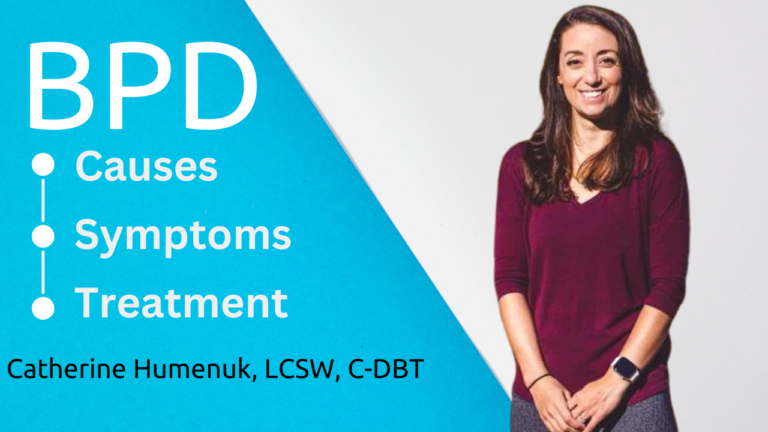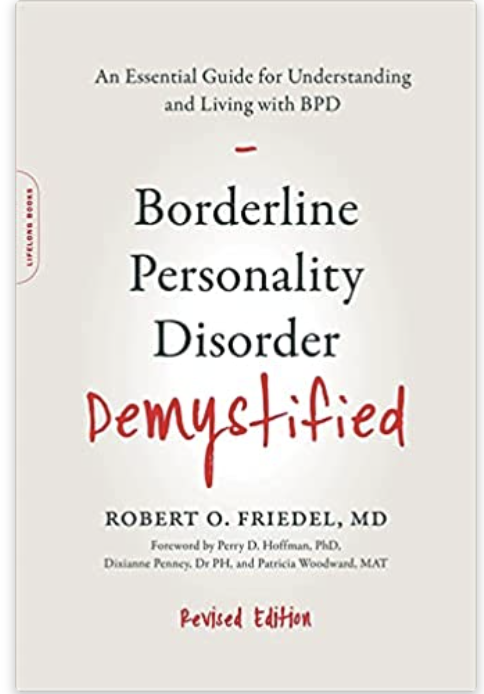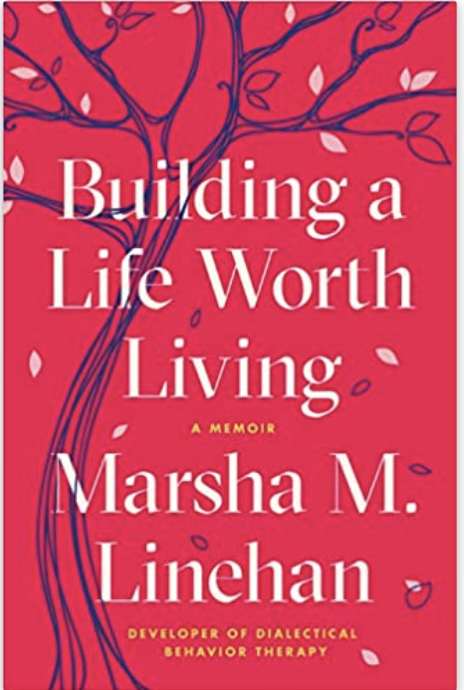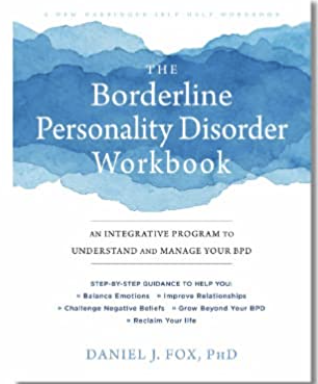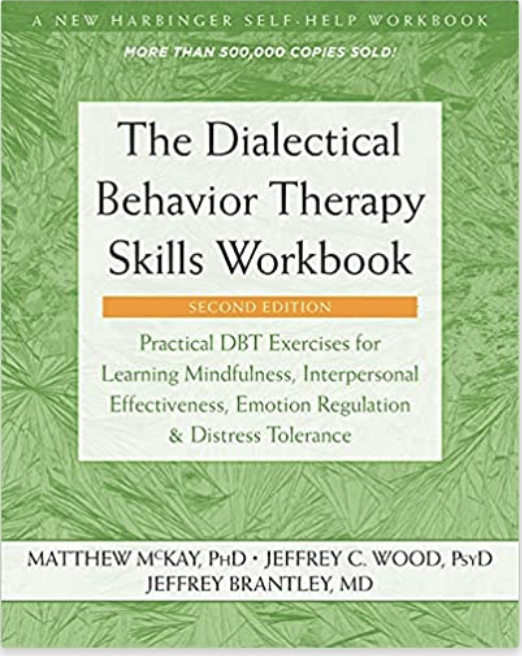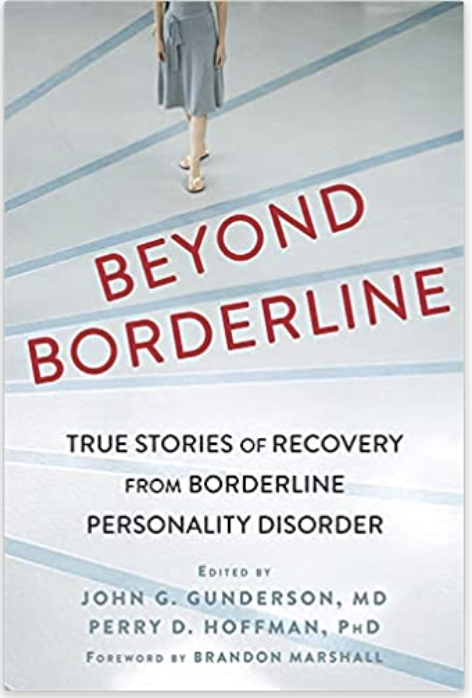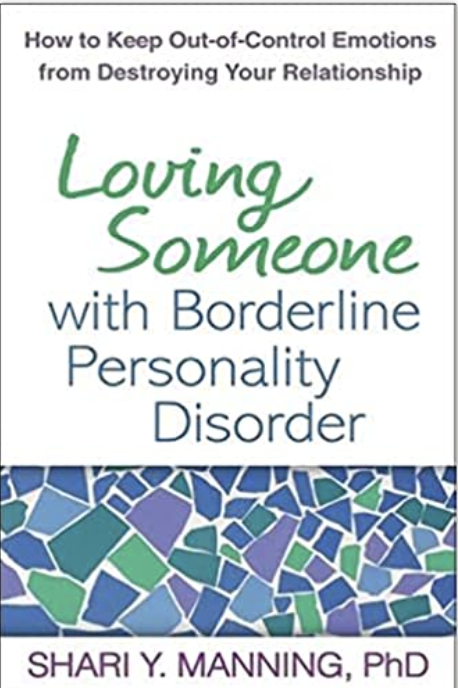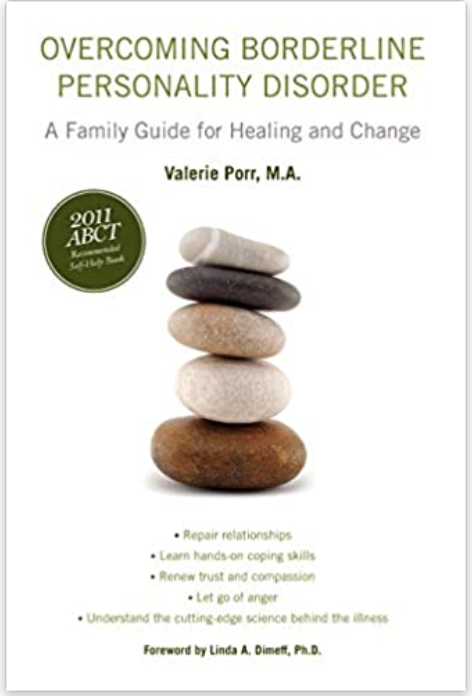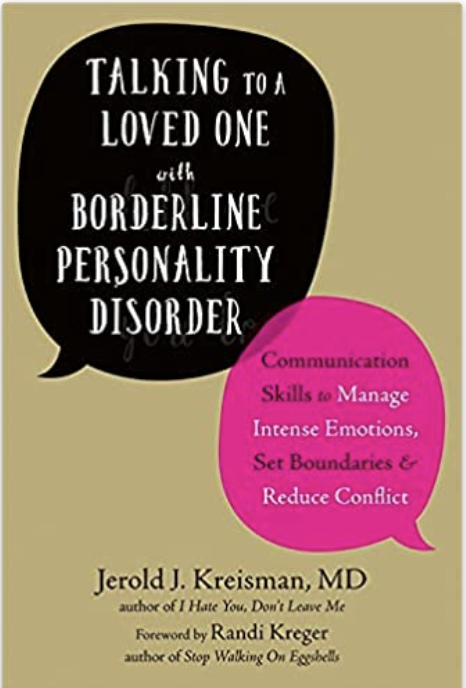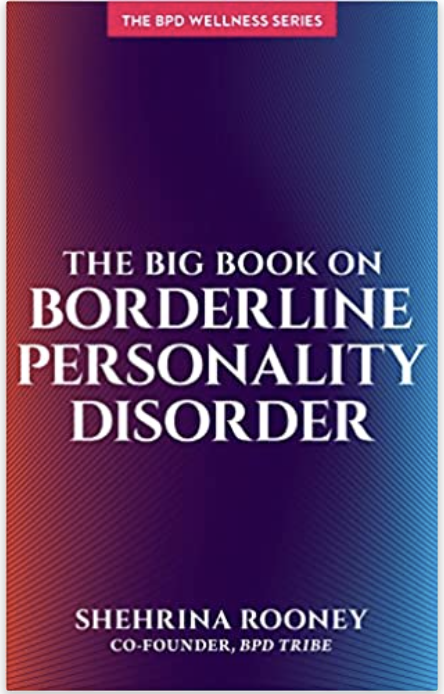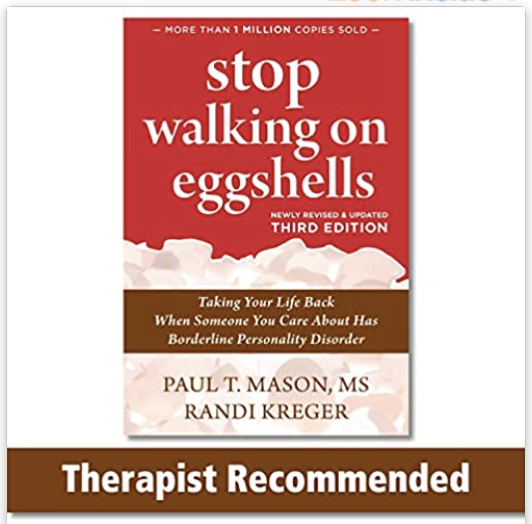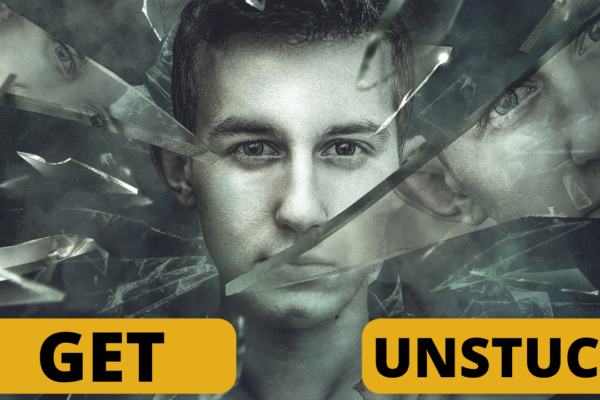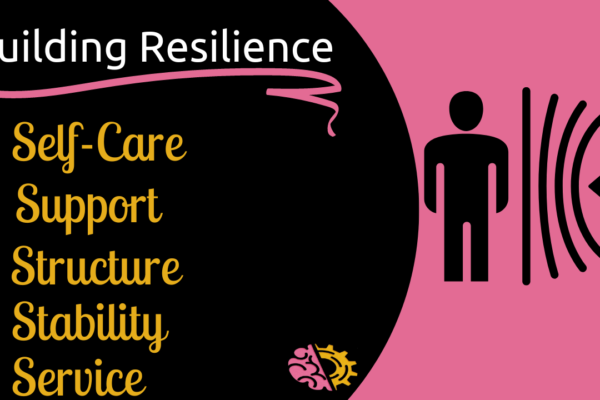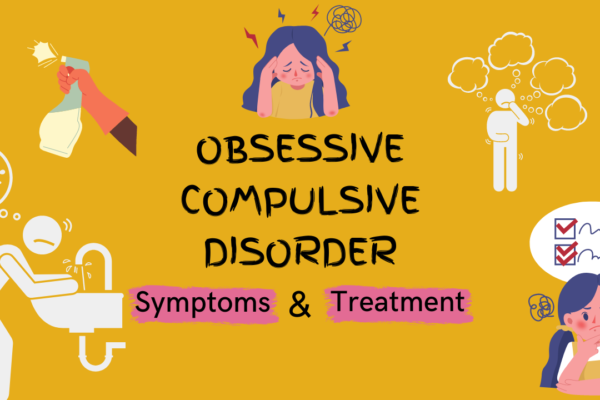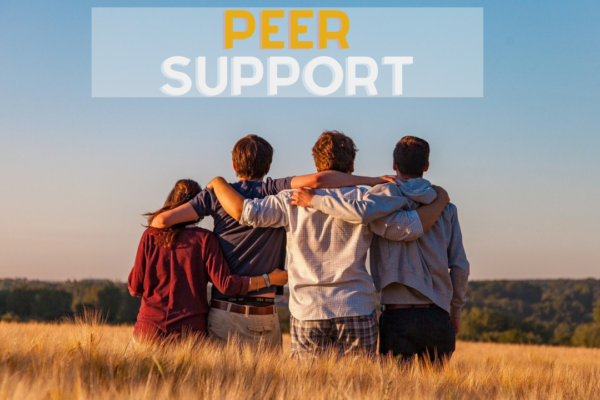Borderline Personality Disorder is a mental health condition that can be tough to treat. In this episode, Catherine Humenuk, LCSW, C-DBT, shares what you need to know about BPD and its treatment.
If you or someone you know is struggling with BPD, this post is for you. Catherine Humenuk provides an in-depth look at BPD causes and symptoms, as well as treatment options. She also emphasizes the importance of seeking help, whether that means seeking out a professional therapist or using Cognitive Behavioral Therapy (CBT). BPD is a serious condition, and by understanding it and seeking help, you can take steps toward recovering from it.
*Some of the links found here are affiliate links: As an Associate I earn from qualifying purchases by way of commission at no additional cost to you. See full disclaimer here:
Table of Contents
BIO: Catherine Humenuk, LCSW, C-DBT

BPD Education.com was founded in 2021 with a simple mission: to change the way people think about Borderline Personality Disorder, by being a compassionate and non-judgmental source of information about BPD.
Hi! I’m Catherine Humenuk, MSW, LCSW, C-DBT, a Licensed Clinical Social Worker who primarily treats Borderline Personality Disorder, Complex PTSD, and substance use disorders. I was originally introduced to DBT (the therapy most often recommended for Borderline Personality Disorder) in my personal life, when a therapist suggested practicing radical acceptance (a DBT skill but also a great life skill in general) about a situation I could not change.
Radical acceptance completely changed my life. I was suddenly free from so much suffering, which I had caused myself by resisting reality. I continued my journey of healing by learning more about mindfulness, and I wanted to share it with others. Ultimately I became a yoga instructor and then a therapist, with the goal of helping people who struggle with overwhelming emotions. As a DBT therapist, I use DBT skills every day in a variety of situations.
In my professional work, I find that Borderline Personality Disorder symptoms just make sense. I noticed that I was able to understand people with BPD, and put some of their experiences into words. When I explained what was happening, my clients with BPD felt validated and supported; their families and loved ones felt relief because they could finally understand what was happening. I hosted some trainings for other mental health providers to share what I know, and the response was amazing.
I started BPD Education to make this information more widely available. This website is certainly not the only website out there with information about BPD, and it might not explain every individual’s experience, but I truly believe it will be a starting point for healing for many.
https://bpdeducation.com/about-bpd-education
Learn More About Catherine Humenuk, LCSW, C-DBT and Borderline Personality Disorder
CONTACT AND SOCIALS:
Website: https://bpdeducation.com/
Instagram: https://www.instagram.com/catherinelcsw/
Facebook: https://www.facebook.com/109611703908781
Lin: https://www.linkedin.com/in/catherinehumenuk/
TikTok: https://www.tiktok.com/@bpdeducation
Twitter: https://www.twitter.com/catherinelcsw
Linktree: https://linktr.ee/bpdeducation
Watch The Interview
If you liked this episode, be sure to check out my full playlist of interviews here: https://youtube.com/playlist?list=PLnPL9gahfhWatKmy2YSyU0jt20h_jrj3H
Listen To The Interview
Recommended Books On Borderline Personality Disorder:
*Some of the links are affiliate links: As an Associate I earn from qualifying purchases by way of commission at no additional cost to you.
Want to learn more? Check out my top picks for books on self-improvement and recovery HERE!
It is my mission to equip you with valuable and effective coping skills and clinical interventions, to improve your mood, be more productive and improve your quality of life, so you can do more, and worry less.
NEED CRISIS HELP? If you need immediate crisis help with your depression, you can call the National Suicide Prevention Lifeline at 1-800-273-8255 or text “START” to 741-741
OUTSIDE THE UNITED STATES: See International Suicide Hotlines
WHERE TO FIND MENTAL HEALTH HELP:
-NAMI Referral Helpline: 1-800-950-6264
-California’s Statewide Mental Health Helpline: 1-855-845-7415
ASK: If you have a question you’d like me to answer here on the blog (even if you think it’s a silly one!), please use the form on the CONTACT ME page, or the comment section below. I would be happy to take a poke at it and provide a long form answer when appropriate.
SHARE: Also, be sure to share it with a friend, as there is still a lot of work to be done in raising mental health awareness.
SUBSCRIBE to get your FREE MOOD TRACKING TOOL and quick Mental Health Hacks in addition to this newsletter. Sign-up with the form below.
Interview Transcript:
00:00:00 Catherine Humenuk, LCSW, C-DBT
I myself grew up very emotionally dysregulated, and I never got an official diagnosis of BPD, but I, you know, there was a time in my adolescence when I was going from therapist to therapist and everybody knew something was wrong with me and nobody knew what it was and nobody could help but everybody.
00:00:20 Catherine Humenuk, LCSW, C-DBT
Felt really free to tell me that I shouldn’t.
00:00:22 Catherine Humenuk, LCSW, C-DBT
Be feeling the way I.
00:00:23 Catherine Humenuk, LCSW, C-DBT
Was feeling.
00:00:24 Catherine Humenuk, LCSW, C-DBT
It was really convenient, forever inconvenient for.
00:00:27 Catherine Humenuk, LCSW, C-DBT
So when I went into local work, I wanted to.
00:00:31 Catherine Humenuk, LCSW, C-DBT
Work with folks like.
00:00:32 Catherine Humenuk, LCSW, C-DBT
Me folks who had those big emotions that the people around them didn’t understand.
00:00:37 Catherine Humenuk, LCSW, C-DBT
That nobody could.
00:00:38 Catherine Humenuk, LCSW, C-DBT
Help them manage because there is a way out.
00:00:41 Catherine Humenuk, LCSW, C-DBT
And I wanted to.
00:00:41 Catherine Humenuk, LCSW, C-DBT
Help people find it.
00:00:42 Patrick Martin-LCSW
Are you or someone you know struggling with borderline personality disorder?
00:00:46 Patrick Martin-LCSW
Then stick around, because in this episode of the mental health toolbox, we are unlocking borderline personality disorder treatment with certified DBT therapist and licensed clinical social worker Catherine Humenik.
00:00:59 Patrick Martin-LCSW
So let’s.
00:01:00 Patrick Martin-LCSW
Hey, if you haven’t done so already, be sure to subscribe to the MEHT newsletter.
00:01:04 Patrick Martin-LCSW
That way you don’t miss out on any new content as it’s released and I have some free stuff waiting for you.
00:01:10 Patrick Martin-LCSW
There is my little way to say thank you for.
00:01:12 Patrick Martin-LCSW
Subscribing also if you know anyone who might benefit from this episode, please do share and help us to raise mental health awareness and grow the channel.
00:01:20 Patrick Martin-LCSW
So let’s dive in.
00:01:29 Patrick Martin-LCSW
Welcome, Catherine.
00:01:30 Patrick Martin-LCSW
Thank you so much for making time to be on the mental Health Toolbox Podcast today.
00:01:35 Patrick Martin-LCSW
It’s a pleasure and an honor to have you on.
00:01:37 Patrick Martin-LCSW
And I just really respect the fact that you’re taking time out of your busy schedule to share your words of wisdom around borderline personality disorder, which is a very prime topic in the mental health space.
00:01:50 Patrick Martin-LCSW
So thank you so much.
00:01:52 Catherine Humenuk, LCSW, C-DBT
Thank you so much for having me.
00:01:54 Patrick Martin-LCSW
Oh, my pleasure.
00:01:55 Patrick Martin-LCSW
So maybe you could share a little bit.
00:01:57 Patrick Martin-LCSW
About who you are and your background and maybe how you got into this particular niche of mental health.
00:02:04 Catherine Humenuk, LCSW, C-DBT
So my name is Catherine Cumnock, I am.
00:02:06 Catherine Humenuk, LCSW, C-DBT
A licensed clinical social.
00:02:07 Catherine Humenuk, LCSW, C-DBT
Worker I have been working in mental.
00:02:10 Catherine Humenuk, LCSW, C-DBT
Health since 2015.
00:02:13 Catherine Humenuk, LCSW, C-DBT
And what really led me to what led me to work in mental health?
00:02:17 Catherine Humenuk, LCSW, C-DBT
Actually this.
00:02:18 Catherine Humenuk, LCSW, C-DBT
Before this I had a previous career in commercial real estate, asset management and underrating.
00:02:25 Catherine Humenuk, LCSW, C-DBT
That kind of thing and.
00:02:27 Catherine Humenuk, LCSW, C-DBT
I was good at it and I.
00:02:28 Catherine Humenuk, LCSW, C-DBT
Enjoyed it, but it didn’t feel like.
00:02:31 Catherine Humenuk, LCSW, C-DBT
I was to feel.
00:02:33 Catherine Humenuk, LCSW, C-DBT
Like my purpose, it didn’t feel like I was put on this earth.
00:02:35 Catherine Humenuk, LCSW, C-DBT
To be really good at Excel.
00:02:37 Catherine Humenuk, LCSW, C-DBT
Spreadsheets and there are people who are.
00:02:39 Catherine Humenuk, LCSW, C-DBT
And bless them and you need them.
00:02:43 Catherine Humenuk, LCSW, C-DBT
So a friend of mine.
00:02:45 Catherine Humenuk, LCSW, C-DBT
Actually at the job I was at, she had.
00:02:48 Catherine Humenuk, LCSW, C-DBT
Worked at the.
00:02:49 Catherine Humenuk, LCSW, C-DBT
School of social work while she was in.
00:02:51 Catherine Humenuk, LCSW, C-DBT
College for a work study.
00:02:53 Catherine Humenuk, LCSW, C-DBT
And she said.
00:02:54 Catherine Humenuk, LCSW, C-DBT
Have you ever thought about social work?
00:02:56 Catherine Humenuk, LCSW, C-DBT
And you could be a good fit for.
00:02:57 Catherine Humenuk, LCSW, C-DBT
You and and I hadn’t, I.
00:03:00 Catherine Humenuk, LCSW, C-DBT
Thought social work was all.
00:03:01 Catherine Humenuk, LCSW, C-DBT
About food stamps and.
00:03:03 Catherine Humenuk, LCSW, C-DBT
Peace management.
00:03:04 Catherine Humenuk, LCSW, C-DBT
I had heard all those nasty stereotypes and she encouraged me to look more into it because I was wrong and I looked more into it.
00:03:10 Catherine Humenuk, LCSW, C-DBT
And I was wrong.
00:03:11 Catherine Humenuk, LCSW, C-DBT
And I was very happy to be wrong and so on a whim, I applied and got in.
00:03:17 Catherine Humenuk, LCSW, C-DBT
And you know here.
00:03:18 Catherine Humenuk, LCSW, C-DBT
I am, but I’ve always.
00:03:20 Catherine Humenuk, LCSW, C-DBT
Wanted to work with people with borderline personality disorder because.
00:03:24 Catherine Humenuk, LCSW, C-DBT
I myself grew up very emotionally dysregulated, and I never got an official diagnosis of BPD, but I, you know, there was a time in my adolescence when I was going from therapist to therapist and everybody knew something was wrong with me and nobody knew what it.
00:03:40 Catherine Humenuk, LCSW, C-DBT
Was and nobody could help.
00:03:42 Catherine Humenuk, LCSW, C-DBT
But everybody felt really free to tell me that I.
00:03:45 Catherine Humenuk, LCSW, C-DBT
Shouldn’t be feeling the way?
00:03:46 Catherine Humenuk, LCSW, C-DBT
I was feeling it was really convenient forever inconvenient for everybody else.
00:03:50 Catherine Humenuk, LCSW, C-DBT
So when I went into clinical work, I wanted to work with folks like me, folks who had those big emotions that the people around them didn’t understand, that nobody could help them manage because there is a way.
00:04:04 Catherine Humenuk, LCSW, C-DBT
And I wanted to help people find it.
00:04:07 Patrick Martin-LCSW
Wow, that’s great.
00:04:08
Is it?
00:04:10 Patrick Martin-LCSW
Typically is right.
00:04:11 Patrick Martin-LCSW
A lot of the time therapists get into this space because of their personal journeys, right?
00:04:18 Patrick Martin-LCSW
Their personal struggles and finding ways to address those things.
00:04:22 Patrick Martin-LCSW
Then we become very empathetic for.
00:04:25 Patrick Martin-LCSW
Asking that, paying that forward right, passing our knowledge along, I know that’s why I got into social work and I did not have any exposure funny enough to social work.
00:04:36 Patrick Martin-LCSW
Maybe like yourself.
00:04:37 Patrick Martin-LCSW
How I thought about it was never even top of mind growing up.
00:04:42 Patrick Martin-LCSW
I was actually studying to be a pharmacist.
00:04:46 Patrick Martin-LCSW
So not even that I was all over the map.
00:04:49 Patrick Martin-LCSW
I was a first generation college student and didn’t really know what I wanted.
00:04:54 Patrick Martin-LCSW
I want X-ray tech, maybe ultrasound tech.
00:04:56 Patrick Martin-LCSW
I was considering that and then did a little research on Bing for your buck and pharmacy was at the top of the.
00:05:02 Patrick Martin-LCSW
List and so I started.
00:05:04 Patrick Martin-LCSW
Setting did that pre Med in sociology and then yeah.
00:05:09 Patrick Martin-LCSW
And then I realized after a while it just wasn’t.
00:05:12 Patrick Martin-LCSW
Poor me.
00:05:13 Patrick Martin-LCSW
I was running away from some things that.
00:05:17 Patrick Martin-LCSW
That wasn’t a good motivation, you know?
00:05:21 Patrick Martin-LCSW
I have now is very much in line with my values and I’m glad I picked social work because I like to help the underdog and people who maybe got a rough start understand that it’s not where you start.
00:05:31 Patrick Martin-LCSW
Off in life, it’s.
00:05:33 Patrick Martin-LCSW
Everything in between and recreating ourselves and getting in scope and.
00:05:37 Patrick Martin-LCSW
So I can definitely relate to that aspect of maybe.
00:05:42 Patrick Martin-LCSW
Not understand the space until we’re in it, but having.
00:05:45 Patrick Martin-LCSW
Leading with our passions leading with our values and.
00:05:49 Patrick Martin-LCSW
In the helping field.
00:05:53 Patrick Martin-LCSW
So that’s fantastic.
00:05:55 Patrick Martin-LCSW
So you obviously went for your MSW, right and then you got into this space of.
00:06:04 Patrick Martin-LCSW
Mental health and at what point did you realize that borderline personality treatment could be its own?
00:06:12 Patrick Martin-LCSW
Full time thing.
00:06:14 Catherine Humenuk, LCSW, C-DBT
Oh, that was.
00:06:16 Catherine Humenuk, LCSW, C-DBT
I I knew that before the program.
00:06:20 Catherine Humenuk, LCSW, C-DBT
So when I was having that conversation with my friend at work about, you know, what am I going to do with my life?
00:06:26 Catherine Humenuk, LCSW, C-DBT
Pretty much laid out like.
00:06:28 Catherine Humenuk, LCSW, C-DBT
I had this I had.
00:06:29 Catherine Humenuk, LCSW, C-DBT
This really wonderful life changing experience.
00:06:32 Catherine Humenuk, LCSW, C-DBT
That helped me and I wanted to be.
00:06:34 Catherine Humenuk, LCSW, C-DBT
Able to facilitate.
00:06:35 Catherine Humenuk, LCSW, C-DBT
That for other people.
00:06:36 Catherine Humenuk, LCSW, C-DBT
So I knew.
00:06:38 Catherine Humenuk, LCSW, C-DBT
That I wanted some kind of private practice.
00:06:41 Catherine Humenuk, LCSW, C-DBT
It was nebulous, you know, one day.
00:06:44 Catherine Humenuk, LCSW, C-DBT
It was a.
00:06:45 Catherine Humenuk, LCSW, C-DBT
A therapeutic ranch and and one day.
00:06:47 Catherine Humenuk, LCSW, C-DBT
It was a DBT program.
00:06:48 Catherine Humenuk, LCSW, C-DBT
And one day it.
00:06:49 Catherine Humenuk, LCSW, C-DBT
Was just a individual private practice, but I always knew my.
00:06:52 Catherine Humenuk, LCSW, C-DBT
Clients would be people with borderline personality disorder.
00:06:56 Patrick Martin-LCSW
Oh, that’s fantastic.
00:06:57 Patrick Martin-LCSW
So you have the vision.
00:06:59 Patrick Martin-LCSW
And as it goes with a lot of our goals, right, we don’t necessarily need to have.
00:07:04 Patrick Martin-LCSW
Everything written in stone.
00:07:05 Patrick Martin-LCSW
In fact, we shouldn’t, because things never quite go according to plan and what we want changes, right?
00:07:11 Patrick Martin-LCSW
Our vision shifts.
00:07:12 Patrick Martin-LCSW
It’s a moving target.
00:07:14 Patrick Martin-LCSW
But it is important to have something on the horizon right that you’re moving toward.
00:07:20 Patrick Martin-LCSW
And so for you, it was definitely serving this population.
00:07:24 Patrick Martin-LCSW
And some greater capacity than maybe what you could do through?
00:07:27 Patrick Martin-LCSW
Agency work I assume?
00:07:30 Catherine Humenuk, LCSW, C-DBT
And I started after Graduate School.
00:07:32 Catherine Humenuk, LCSW, C-DBT
I worked in an intensive outpatient program.
00:07:35 Catherine Humenuk, LCSW, C-DBT
So there were.
00:07:36 Catherine Humenuk, LCSW, C-DBT
A lot of books with.
00:07:37 Catherine Humenuk, LCSW, C-DBT
BPD there, but also a lot of.
00:07:38 Catherine Humenuk, LCSW, C-DBT
Folks with affective disorder, bipolar disorder, major depression, PTSD.
00:07:45 Catherine Humenuk, LCSW, C-DBT
And of course, there’s tons of overlap in the symptoms there, but I worked in the IOP program and then I went and I worked in, ER, doing refreshment.
00:07:54 Catherine Humenuk, LCSW, C-DBT
So I talked.
00:07:55 Catherine Humenuk, LCSW, C-DBT
To people who have been brought in.
00:07:57 Catherine Humenuk, LCSW, C-DBT
Maybe by the police or maybe.
00:08:00 Catherine Humenuk, LCSW, C-DBT
After a suicide attempt and I would talk with them.
00:08:04 Catherine Humenuk, LCSW, C-DBT
And see what the.
00:08:05 Catherine Humenuk, LCSW, C-DBT
Us place for them was going to be whether it’s going to be inpatient or back.
00:08:09 Catherine Humenuk, LCSW, C-DBT
At home.
00:08:09 Catherine Humenuk, LCSW, C-DBT
And doing outpatient care.
00:08:11 Catherine Humenuk, LCSW, C-DBT
So we did that.
00:08:11 Catherine Humenuk, LCSW, C-DBT
For about.
00:08:14 Catherine Humenuk, LCSW, C-DBT
About five years.
00:08:16 Catherine Humenuk, LCSW, C-DBT
Before I started private practice.
00:08:19 Patrick Martin-LCSW
All right, so you have kind of a nice varied wealth of experience, right to draw from?
00:08:24 Patrick Martin-LCSW
But you were at the same time, we’re looking maybe for some common threads and the problems you were seeing, you’re starting to identify those, right?
00:08:33 Patrick Martin-LCSW
When it comes to BPD or borderline personality disorder, not to be confused with bipolar disorder, which is, you know, same acronym.
00:08:45 Patrick Martin-LCSW
What do you feel are some common misconceptions about?
00:08:50 Patrick Martin-LCSW
Borderline disorder, or some some myths that you’ve come across.
00:08:56 Catherine Humenuk, LCSW, C-DBT
So there’s a lot.
00:08:57 Catherine Humenuk, LCSW, C-DBT
Of misinformation in the media, most recently last year with the Amber Heard trial, BPD started getting a whole bunch of attention, and not in a compassionate, educational way.
00:09:13 Catherine Humenuk, LCSW, C-DBT
There’s a lot of misunderstandings and I would say the biggest one is that people with BPD don’t get better doing your quotes because that’s not true.
00:09:23 Catherine Humenuk, LCSW, C-DBT
We used to think that weaving academia because we didn’t have.
00:09:28 Catherine Humenuk, LCSW, C-DBT
A treatment for it.
00:09:30 Catherine Humenuk, LCSW, C-DBT
And so people weren’t getting better.
00:09:32 Catherine Humenuk, LCSW, C-DBT
Because we weren’t treating them effectively.
00:09:35 Catherine Humenuk, LCSW, C-DBT
But that doesn’t mean that that’s true in them.
00:09:39 Catherine Humenuk, LCSW, C-DBT
It just sounds like that’s kind of.
00:09:40 Catherine Humenuk, LCSW, C-DBT
Been handed down from you.
00:09:42 Catherine Humenuk, LCSW, C-DBT
Know generations of supervisors to supervisees.
00:09:46 Catherine Humenuk, LCSW, C-DBT
And unless somebody actually.
00:09:47 Catherine Humenuk, LCSW, C-DBT
Is curious enough to go look.
00:09:49 Catherine Humenuk, LCSW, C-DBT
Into the research because they have a.
00:09:51 Catherine Humenuk, LCSW, C-DBT
Particular interest in that population?
00:09:53 Catherine Humenuk, LCSW, C-DBT
They’re never going to know that that information is.
00:09:55
Take it.
00:09:56 Catherine Humenuk, LCSW, C-DBT
We think that’s definitely the number and most harmful misconception.
00:10:01 Patrick Martin-LCSW
That you have this thing and you’re always going to have it and there’s no cure.
00:10:04 Patrick Martin-LCSW
And the best you can hope for is to just survive.
00:10:08 Patrick Martin-LCSW
Right.
00:10:08 Catherine Humenuk, LCSW, C-DBT
And that’s a really, I mean.
00:10:11 Catherine Humenuk, LCSW, C-DBT
How could you possibly get somebody motivated for?
00:10:13 Catherine Humenuk, LCSW, C-DBT
Treatment, if you.
00:10:14
Say that.
00:10:16 Patrick Martin-LCSW
Right.
00:10:16 Patrick Martin-LCSW
And not just any treatment, I mean this is.
00:10:18 Patrick Martin-LCSW
It’s a tall order.
00:10:20 Patrick Martin-LCSW
Right.
00:10:20 Patrick Martin-LCSW
And I’m.
00:10:21 Patrick Martin-LCSW
I’m assuming that the the primary mode of treatment is still dialectical behavioral therapy, right?
00:10:27 Catherine Humenuk, LCSW, C-DBT
There are some additional ones, so we’ve also got mentalization based therapies, chemo focus therapy, transference focused therapy.
00:10:36 Catherine Humenuk, LCSW, C-DBT
Then there’s some purely skilled spacelines like steps which I am forgetting exactly what it stands.
00:10:41 Catherine Humenuk, LCSW, C-DBT
For but it skills training.
00:10:44 Catherine Humenuk, LCSW, C-DBT
Something something I so apologize.
00:10:46 Patrick Martin-LCSW
Oh, no, you’re fine.
00:10:47 Patrick Martin-LCSW
I know.
00:10:49 Patrick Martin-LCSW
You know more than I’ve ever.
00:10:50 Patrick Martin-LCSW
I mean, you forget more than I’ve ever known about this condition, so.
00:10:54 Catherine Humenuk, LCSW, C-DBT
So there’s lots of other treatments available now.
00:10:58 Catherine Humenuk, LCSW, C-DBT
How readily available they actually are in?
00:11:00 Catherine Humenuk, LCSW, C-DBT
Somebody’s community.
00:11:04 Catherine Humenuk, LCSW, C-DBT
May make them.
00:11:05 Catherine Humenuk, LCSW, C-DBT
Inaccessible in a practical way, but we do know that they’re out there and.
00:11:08 Catherine Humenuk, LCSW, C-DBT
That they exist.
00:11:12 Catherine Humenuk, LCSW, C-DBT
DBT is still really the initial go to and what we know about DBT is that they have this.
00:11:20 Catherine Humenuk, LCSW, C-DBT
Wrap around program so.
00:11:21 Catherine Humenuk, LCSW, C-DBT
You can get skills training, individual therapy, 24 hour a day, skills coaching and then also having your therapist be in their own.
00:11:30 Catherine Humenuk, LCSW, C-DBT
Consultation group to make sure that they’re getting accountability as well.
00:11:34 Catherine Humenuk, LCSW, C-DBT
That’s still the ideal gold standard and whenever we can.
00:11:39 Catherine Humenuk, LCSW, C-DBT
We want to provide.
00:11:40 Catherine Humenuk, LCSW, C-DBT
That, but that’s also from a.
00:11:42 Catherine Humenuk, LCSW, C-DBT
Systemic point of view, incredibly difficult to.
00:11:46 Catherine Humenuk, LCSW, C-DBT
The group takes.
00:11:48 Catherine Humenuk, LCSW, C-DBT
Six months to a year commitment, many times people can’t always make that commitment for really practical reasons, right?
00:11:55 Catherine Humenuk, LCSW, C-DBT
Not their personal motivation, but just.
00:11:58
I don’t.
00:11:58 Catherine Humenuk, LCSW, C-DBT
Know if I could sign up to be somewhere twice a week for.
00:12:01 Catherine Humenuk, LCSW, C-DBT
The next year.
00:12:02 Catherine Humenuk, LCSW, C-DBT
So I don’t know how that I could.
00:12:03 Catherine Humenuk, LCSW, C-DBT
Expect that of the average person.
00:12:06 Catherine Humenuk, LCSW, C-DBT
Who’s coming in for a dream?
00:12:09 Catherine Humenuk, LCSW, C-DBT
So we do know there is a lot of research.
00:12:11 Catherine Humenuk, LCSW, C-DBT
That just the skills and.
00:12:13 Catherine Humenuk, LCSW, C-DBT
DVD’s are also incredibly effective.
00:12:17 Catherine Humenuk, LCSW, C-DBT
It may not be.
00:12:18 Catherine Humenuk, LCSW, C-DBT
As great as the full wrap around program, but skills training is still incredibly.
00:12:25 Catherine Humenuk, LCSW, C-DBT
Powerful and can make big changes for people.
00:12:27 Catherine Humenuk, LCSW, C-DBT
So however, we can get them.
00:12:28 Catherine Humenuk, LCSW, C-DBT
The skills, whether it’s a group, whether it’s individual.
00:12:32 Catherine Humenuk, LCSW, C-DBT
We want to try to get.
00:12:32 Catherine Humenuk, LCSW, C-DBT
The skills to people as.
00:12:34 Catherine Humenuk, LCSW, C-DBT
Fast as possible after they’re initially.
00:12:36 Catherine Humenuk, LCSW, C-DBT
Spotted for diagnosis because it can make.
00:12:38 Catherine Humenuk, LCSW, C-DBT
A big change.
00:12:40 Patrick Martin-LCSW
Thank you so much for mentioning that because I actually led a DBT program or assisted for a couple of years doing the groups individual and the whole bit, and it is very intensive in terms of the draw on staff, right and time and.
00:12:54 Patrick Martin-LCSW
It’s it’s not an easy thing, I think in terms of treatment to find, especially at certain levels.
00:13:01 Patrick Martin-LCSW
Like medical and otherwise, because it is so staff intensive, right?
00:13:06 Patrick Martin-LCSW
But I’m happy to hear that it’s still efficacious.
00:13:09 Patrick Martin-LCSW
It sounds like to have maybe parceled out.
00:13:13 Patrick Martin-LCSW
Aspects of the treatment, like the skills training.
00:13:18 Patrick Martin-LCSW
Good, good.
00:13:19 Catherine Humenuk, LCSW, C-DBT
It was a big a big relief too.
00:13:21 Catherine Humenuk, LCSW, C-DBT
And you know in in my own private practice.
00:13:24 Catherine Humenuk, LCSW, C-DBT
So I don’t run a full comprehensive program and the clients that end up coming to me are the people who they actually wouldn’t be willing or able to.
00:13:33 Catherine Humenuk, LCSW, C-DBT
Go to the group.
00:13:34 Catherine Humenuk, LCSW, C-DBT
At this point in their recovery anyway, whether that’s because they don’t have the time, whether it’s because they don’t have the finances.
00:13:41 Catherine Humenuk, LCSW, C-DBT
Then they.
00:13:41 Catherine Humenuk, LCSW, C-DBT
Will have transportation.
00:13:43 Catherine Humenuk, LCSW, C-DBT
Whether it’s they just aren’t comfortable enough talking about what they’re going through to share it in.
00:13:48 Catherine Humenuk, LCSW, C-DBT
Front of other people.
00:13:50 Catherine Humenuk, LCSW, C-DBT
And so that actually would have been.
00:13:51 Catherine Humenuk, LCSW, C-DBT
A barrier?
00:13:51 Catherine Humenuk, LCSW, C-DBT
To them, if that was mandated.
00:13:54 Catherine Humenuk, LCSW, C-DBT
So I do like being able to provide it to a different subset of the population that might.
00:13:59
Not be able to access it otherwise.
00:14:03 Patrick Martin-LCSW
Yeah, that’s good to know.
00:14:05 Patrick Martin-LCSW
You know, any, any, any, any access point is valuable, I’m sure when it comes to recovery like like anything, right, we all have to start somewhere and it’s better to not get trapped in that all or nothing mindset that black and white mindset when it comes to treatment.
00:14:21 Patrick Martin-LCSW
Like, it’s important to just start somewhere.
00:14:24 Patrick Martin-LCSW
Right. Any point?
00:14:25 Patrick Martin-LCSW
And and work from there, right?
00:14:27 Patrick Martin-LCSW
Do what you can with what you have with where you are.
00:14:30 Patrick Martin-LCSW
Knowing your resources.
00:14:32 Patrick Martin-LCSW
And not giving up, right?
00:14:33 Patrick Martin-LCSW
I mean how?
00:14:35 Patrick Martin-LCSW
How discouraging is it when you you’re finally ready to ask for help and then you’re like, OK, let’s go.
00:14:40 Patrick Martin-LCSW
And then you find out.
00:14:42 Patrick Martin-LCSW
The 1st 10 people you reach out to aren’t available, and there’s a by the time you get to someone, it’s a three month, six month wait to be seen.
00:14:48 Patrick Martin-LCSW
That’s very discouraging.
00:14:50 Patrick Martin-LCSW
And I would venture to guess that most people give.
00:14:52 Patrick Martin-LCSW
Up after the first call.
00:14:54 Patrick Martin-LCSW
Let alone 10 or 15 attempts to get linked somewhere.
00:14:59 Patrick Martin-LCSW
Right.
00:14:59 Catherine Humenuk, LCSW, C-DBT
I mean, I’ve even I found that in.
00:15:01 Catherine Humenuk, LCSW, C-DBT
My own life?
00:15:02 Catherine Humenuk, LCSW, C-DBT
Because therapist.
00:15:02 Catherine Humenuk, LCSW, C-DBT
Good therapy, right where I’ve sent out.
00:15:05 Catherine Humenuk, LCSW, C-DBT
Requests and I mean and I’m behind the scenes.
00:15:09 Catherine Humenuk, LCSW, C-DBT
I know how it works, so I’ll just send out.
00:15:11 Catherine Humenuk, LCSW, C-DBT
Ten in a row.
00:15:11 Catherine Humenuk, LCSW, C-DBT
I’ll just copy.
00:15:12 Catherine Humenuk, LCSW, C-DBT
Paste it all and I’ll get one answer.
00:15:15 Catherine Humenuk, LCSW, C-DBT
And for me, being behind the scenes, I.
00:15:18 Catherine Humenuk, LCSW, C-DBT
Know that that’s not a.
00:15:18 Catherine Humenuk, LCSW, C-DBT
Rejection, but it’s still really frustrating and.
00:15:22 Catherine Humenuk, LCSW, C-DBT
What if I don’t?
00:15:23 Catherine Humenuk, LCSW, C-DBT
Vibe with that one person who does get back to me.
00:15:26 Catherine Humenuk, LCSW, C-DBT
And if I was just a client who had.
00:15:29 Catherine Humenuk, LCSW, C-DBT
No prior knowledge and all I knew was.
00:15:31 Catherine Humenuk, LCSW, C-DBT
That I was suffering and I didn’t know how the system worked that would.
00:15:34 Catherine Humenuk, LCSW, C-DBT
Be incredibly difficult.
00:15:38 Patrick Martin-LCSW
Thank you for saying that too, because that’s definitely something I try and encourage clients to do when I’m reaching, when I’m referring out, I will say, OK, you know whether it’s Psychology Today or whatever, you know, jump on there, pick 10 and speak to you and use the e-mail feature.
00:15:53 Patrick Martin-LCSW
Right.
00:15:54 Patrick Martin-LCSW
Because as we know like on those databases, if you use the e-mail then the therapist will get a text message.
00:15:59 Patrick Martin-LCSW
Send an e-mail that somebody reached out to them and.
00:16:04 Patrick Martin-LCSW
Therapists aren’t always checking their voicemails because they’re usually in session, right e-mail.
00:16:08 Patrick Martin-LCSW
They usually always have in front of them, right?
00:16:11 Patrick Martin-LCSW
And so and picking always say yeah, like maybe one out of 10 we’ll get back to you don’t.
00:16:14 Patrick Martin-LCSW
Take it personally.
00:16:17 Patrick Martin-LCSW
It’s just a, it’s just.
00:16:18 Patrick Martin-LCSW
A supply and demand issue, so.
00:16:20 Patrick Martin-LCSW
Thank you for touching on that cause.
00:16:22 Patrick Martin-LCSW
I think that’s important as we’re talking about a targeted treatment like this, which might even be a little harder to find in the private even in the private sector, right, people who are are trained in DBT or otherwise.
00:16:33 Patrick Martin-LCSW
To to get linked right, not just, it’s not just your run-of-the-mill treatment for anxiety or depression.
00:16:39 Patrick Martin-LCSW
It’s very specific, kind of like you think of like PTSD, right in EMDR or brainspotting or blonde exposure.
00:16:46 Patrick Martin-LCSW
Right.
00:16:46 Patrick Martin-LCSW
It’s a very specific kind of.
00:16:48 Patrick Martin-LCSW
Treatment. Yeah, yeah.
00:16:51 Patrick Martin-LCSW
I wonder what your thoughts are on.
00:16:55 Patrick Martin-LCSW
The lack of emotion regulation skills, right?
00:16:58 Patrick Martin-LCSW
Because I know that’s a big part of the recovery process, so.
00:17:05 Patrick Martin-LCSW
What’s the what’s the impact on on someone when they when they lack these skills, I know and some of the the content you’ve put out, you’ve talked on this subject about maybe what contributes to the development of borderline disorder.
00:17:18 Patrick Martin-LCSW
Right.
00:17:19 Patrick Martin-LCSW
And how sometimes it’s not, it’s not something that’s learned along the way.
00:17:24 Patrick Martin-LCSW
Can you speak to that a?
00:17:24 Patrick Martin-LCSW
Little bit.
00:17:25 Catherine Humenuk, LCSW, C-DBT
Yeah. So.
00:17:27 Catherine Humenuk, LCSW, C-DBT
One thing that I will say.
00:17:28 Catherine Humenuk, LCSW, C-DBT
Is that it’s going to be piggy.
00:17:30 Catherine Humenuk, LCSW, C-DBT
Because it’s not a.
00:17:31 Catherine Humenuk, LCSW, C-DBT
Lack it’s a lack of effective emotion regulation.
00:17:36 Catherine Humenuk, LCSW, C-DBT
People with BPD have plenty of emotion regulation skills.
00:17:40 Catherine Humenuk, LCSW, C-DBT
They’re not affected in their environment.
00:17:42 Catherine Humenuk, LCSW, C-DBT
Right.
00:17:43 Catherine Humenuk, LCSW, C-DBT
So you know for for lack of a better example, getting angry, screaming and throwing your phone is actually a very effective way to release the energy from the anger, to give it a voice and to kind.
00:17:57 Catherine Humenuk, LCSW, C-DBT
Of get it out of your body.
00:17:59 Catherine Humenuk, LCSW, C-DBT
Unfortunately, we live in.
00:18:01 Catherine Humenuk, LCSW, C-DBT
A world where if you’re getting angry at people.
00:18:03 Catherine Humenuk, LCSW, C-DBT
Yelling and throwing your phone.
00:18:05 Catherine Humenuk, LCSW, C-DBT
People are going to.
00:18:07 Catherine Humenuk, LCSW, C-DBT
Really, they might judge.
00:18:08 Catherine Humenuk, LCSW, C-DBT
You for that.
00:18:09 Catherine Humenuk, LCSW, C-DBT
They might look down on you.
00:18:11 Catherine Humenuk, LCSW, C-DBT
Might not want.
00:18:11 Catherine Humenuk, LCSW, C-DBT
To spend more time with.
00:18:12 Catherine Humenuk, LCSW, C-DBT
You if you hit them with your phone there.
00:18:15 Catherine Humenuk, LCSW, C-DBT
That could be an assault.
00:18:16 Catherine Humenuk, LCSW, C-DBT
If you break your phone now, you have.
00:18:18 Catherine Humenuk, LCSW, C-DBT
To go pay hundreds.
00:18:18 Catherine Humenuk, LCSW, C-DBT
Of dollars for a new phone.
00:18:21 Catherine Humenuk, LCSW, C-DBT
I think that distinction.
00:18:22 Catherine Humenuk, LCSW, C-DBT
I know I’m being kind of picky, but.
00:18:23 Catherine Humenuk, LCSW, C-DBT
It’s really important distinction because.
00:18:26 Catherine Humenuk, LCSW, C-DBT
People with BPD have very advanced emotion regulation.
00:18:29 Catherine Humenuk, LCSW, C-DBT
They’re just not effective in the.
00:18:32
World that we live in.
00:18:35
So I.
00:18:35 Catherine Humenuk, LCSW, C-DBT
Hope that makes sense.
00:18:36 Patrick Martin-LCSW
Absolutely. That’s a.
00:18:37 Patrick Martin-LCSW
Huge distinction.
00:18:38 Patrick Martin-LCSW
Thank you for that, because we do what we know.
00:18:42 Patrick Martin-LCSW
And we do what we do because on some level it’s worked.
00:18:45 Catherine Humenuk, LCSW, C-DBT
Exactly and.
00:18:46 Patrick Martin-LCSW
Right, all behaviors learned right.
00:18:50 Catherine Humenuk, LCSW, C-DBT
And what we find is so folks with BPD, the level that they feel emotion is.
00:18:59 Catherine Humenuk, LCSW, C-DBT
I can’t give you a number I wish.
00:19:00 Catherine Humenuk, LCSW, C-DBT
I could save 6040, but I can’t.
00:19:03 Catherine Humenuk, LCSW, C-DBT
The research is still out.
00:19:06 Catherine Humenuk, LCSW, C-DBT
We know it’s a little bit nature and a little bit.
00:19:08 Catherine Humenuk, LCSW, C-DBT
We don’t know exactly what.
00:19:09 Catherine Humenuk, LCSW, C-DBT
The recipe is.
00:19:12 Catherine Humenuk, LCSW, C-DBT
Partially, the intensity of their motions.
00:19:14 Catherine Humenuk, LCSW, C-DBT
That’s just how.
00:19:15 Catherine Humenuk, LCSW, C-DBT
They’re born.
00:19:16 Catherine Humenuk, LCSW, C-DBT
Some people feel their feelings bigger.
00:19:20 Catherine Humenuk, LCSW, C-DBT
And what leads to borderline disorder is when those people with those big emotions are put in an environment where the adults around them do not know what to.
00:19:31 Catherine Humenuk, LCSW, C-DBT
Do with them.
00:19:33 Catherine Humenuk, LCSW, C-DBT
So your your average.
00:19:36 Catherine Humenuk, LCSW, C-DBT
You know, neurotypical mentally well, baby.
00:19:40 Catherine Humenuk, LCSW, C-DBT
It cries.
00:19:41 Catherine Humenuk, LCSW, C-DBT
Mom picks it up.
00:19:43 Catherine Humenuk, LCSW, C-DBT
Maybe it just wants comfort.
00:19:44 Catherine Humenuk, LCSW, C-DBT
It stops crying or mom picks it up and smells.
00:19:47 Catherine Humenuk, LCSW, C-DBT
The Dirty diaper cleans.
00:19:48 Catherine Humenuk, LCSW, C-DBT
The diaper baby stops crying or baby’s tired.
00:19:51 Catherine Humenuk, LCSW, C-DBT
Mom cleans it a lullaby baby, but.
00:19:54 Catherine Humenuk, LCSW, C-DBT
I’m not a parent and I’m aware that I’m grossly oversimplifying parenting there.
00:19:59 Patrick Martin-LCSW
That’s the ideal picture.
00:20:00 Catherine Humenuk, LCSW, C-DBT
I’m sure all the parents listening are.
00:20:01 Catherine Humenuk, LCSW, C-DBT
Like it is not that easy, but generally speaking, right?
00:20:06 Catherine Humenuk, LCSW, C-DBT
The baby experiences some kind of discomfort.
00:20:09 Catherine Humenuk, LCSW, C-DBT
An adult comes, tends to it fix the problem.
00:20:12 Catherine Humenuk, LCSW, C-DBT
The baby feels better, stop crying and then.
00:20:14 Catherine Humenuk, LCSW, C-DBT
The baby gets a positive.
00:20:15 Catherine Humenuk, LCSW, C-DBT
Response from the adult and the baby stops crying.
00:20:18 Catherine Humenuk, LCSW, C-DBT
The adult.
00:20:20 Catherine Humenuk, LCSW, C-DBT
Cuddles it more or says.
00:20:21 Catherine Humenuk, LCSW, C-DBT
Nice things or speaks to it.
00:20:22 Catherine Humenuk, LCSW, C-DBT
And soothing voice or Pats, it’s back, or tucks.
00:20:25 Catherine Humenuk, LCSW, C-DBT
It in or whatever it might be.
00:20:27 Catherine Humenuk, LCSW, C-DBT
And the baby will learn.
00:20:29 Catherine Humenuk, LCSW, C-DBT
OK, I have these big emotions.
00:20:30 Catherine Humenuk, LCSW, C-DBT
They’re scary, but.
00:20:31 Catherine Humenuk, LCSW, C-DBT
It’s OK I.
00:20:32 Catherine Humenuk, LCSW, C-DBT
Live in a big.
00:20:32 Catherine Humenuk, LCSW, C-DBT
World these feelings don’t last forever.
00:20:34 Catherine Humenuk, LCSW, C-DBT
They’re not going to kill me.
00:20:35 Catherine Humenuk, LCSW, C-DBT
I just need some help with them.
00:20:37 Catherine Humenuk, LCSW, C-DBT
And then.
00:20:38 Catherine Humenuk, LCSW, C-DBT
As the baby grows.
00:20:38 Catherine Humenuk, LCSW, C-DBT
Into a toddler into it.
00:20:41 Catherine Humenuk, LCSW, C-DBT
The baby will adapt those regulation skills on its own.
00:20:45 Catherine Humenuk, LCSW, C-DBT
OK, I don’t.
00:20:46 Catherine Humenuk, LCSW, C-DBT
Like it when I have a dirty diaper.
00:20:47 Catherine Humenuk, LCSW, C-DBT
I will take myself to the.
00:20:48 Catherine Humenuk, LCSW, C-DBT
Toilet and then I won’t.
00:20:50 Catherine Humenuk, LCSW, C-DBT
Have to be sad about having a dirty diaper.
00:20:52 Catherine Humenuk, LCSW, C-DBT
I don’t like it when I’m really.
00:20:55 Catherine Humenuk, LCSW, C-DBT
Well, now I have enough time.
00:20:56 Catherine Humenuk, LCSW, C-DBT
Built into my.
00:20:56 Catherine Humenuk, LCSW, C-DBT
Day for as long as I need it, and then when I’m old enough that I.
00:20:59 Catherine Humenuk, LCSW, C-DBT
Don’t need it.
00:21:00 Catherine Humenuk, LCSW, C-DBT
It’s not built into my day.
00:21:04 Catherine Humenuk, LCSW, C-DBT
But when you have.
00:21:05 Catherine Humenuk, LCSW, C-DBT
People with the with these really big emotions, you.
00:21:09 Catherine Humenuk, LCSW, C-DBT
Might get a baby that cries because it feels lonely.
00:21:13 Catherine Humenuk, LCSW, C-DBT
And if it takes Mom 30 extra seconds.
00:21:15 Catherine Humenuk, LCSW, C-DBT
To get there or dad will bring them.
00:21:18 Catherine Humenuk, LCSW, C-DBT
The baby will feel like.
00:21:20 Catherine Humenuk, LCSW, C-DBT
No one’s coming, and it will become inconsolable even when the parent.
00:21:24 Catherine Humenuk, LCSW, C-DBT
That’s there.
00:21:24 Catherine Humenuk, LCSW, C-DBT
The baby doesn’t stop crying right away.
00:21:27 Catherine Humenuk, LCSW, C-DBT
And the mom thinks.
00:21:29 Catherine Humenuk, LCSW, C-DBT
I have three kids. Why?
00:21:30 Catherine Humenuk, LCSW, C-DBT
Is this one so hard?
00:21:34 Catherine Humenuk, LCSW, C-DBT
And mom’s.
00:21:35 Catherine Humenuk, LCSW, C-DBT
Not being evil, dad’s not being evil. Grandma’s not being evil.
00:21:38 Catherine Humenuk, LCSW, C-DBT
They’re genuinely confused.
00:21:40 Catherine Humenuk, LCSW, C-DBT
Why everybody told me this would work.
00:21:43 Catherine Humenuk, LCSW, C-DBT
It works with my other kids.
00:21:44 Catherine Humenuk, LCSW, C-DBT
It works with my.
00:21:44 Catherine Humenuk, LCSW, C-DBT
Friends, kids.
00:21:46 Catherine Humenuk, LCSW, C-DBT
Why is this baby still crying?
00:21:48 Catherine Humenuk, LCSW, C-DBT
And then the caregiver.
00:21:49 Catherine Humenuk, LCSW, C-DBT
Will get frustrated.
00:21:52 Catherine Humenuk, LCSW, C-DBT
And now the baby learns.
00:21:54 Catherine Humenuk, LCSW, C-DBT
While I cry nobody.
00:21:55 Catherine Humenuk, LCSW, C-DBT
Came to get me, which of course is an exaggeration.
00:21:58 Catherine Humenuk, LCSW, C-DBT
Hopefully of course, there are babies that do endure trauma that nobody comes to get.
00:22:04 Catherine Humenuk, LCSW, C-DBT
But you know, I cried.
00:22:05 Catherine Humenuk, LCSW, C-DBT
I felt alone.
00:22:06 Catherine Humenuk, LCSW, C-DBT
And then when somebody.
00:22:07 Catherine Humenuk, LCSW, C-DBT
They were mad at me for crying.
00:22:11 Catherine Humenuk, LCSW, C-DBT
And of course, the baby doesn’t have words.
00:22:13 Catherine Humenuk, LCSW, C-DBT
For this, so they just.
00:22:14 Catherine Humenuk, LCSW, C-DBT
Internalize the feeling that being sad is intolerable.
00:22:21 Catherine Humenuk, LCSW, C-DBT
And when you have this happen.
00:22:23 Catherine Humenuk, LCSW, C-DBT
10 times a day for you.
00:22:24 Catherine Humenuk, LCSW, C-DBT
Know years and years.
00:22:26 Catherine Humenuk, LCSW, C-DBT
Then what happens is in that baby’s brain, that feeling goes from zero.
00:22:30 Catherine Humenuk, LCSW, C-DBT
To 60 immediately.
00:22:33 Catherine Humenuk, LCSW, C-DBT
Now you have a 5 year old who.
00:22:35 Catherine Humenuk, LCSW, C-DBT
You know.
00:22:36 Catherine Humenuk, LCSW, C-DBT
The caregiver got out of the car and shut the door and didn’t immediately open the door for them and the child safety lack.
00:22:42 Catherine Humenuk, LCSW, C-DBT
Of fun and.
00:22:42 Catherine Humenuk, LCSW, C-DBT
The kids like I’m getting abandoned in this car.
00:22:44 Catherine Humenuk, LCSW, C-DBT
My my parents are leaving me in.
00:22:46 Catherine Humenuk, LCSW, C-DBT
This car and they’re panicking and panicking.
00:22:49 Catherine Humenuk, LCSW, C-DBT
Finally the door.
00:22:50 Catherine Humenuk, LCSW, C-DBT
Gets open.
00:22:50 Catherine Humenuk, LCSW, C-DBT
The kids are crying.
00:22:51 Catherine Humenuk, LCSW, C-DBT
You left me in the car.
00:22:52 Catherine Humenuk, LCSW, C-DBT
You left me in the car and the.
00:22:53
In pants at night.
00:22:55 Catherine Humenuk, LCSW, C-DBT
It was right here.
00:22:58 Catherine Humenuk, LCSW, C-DBT
And of course, there are also, you know, a child who is raised in an abusive environment.
00:23:02 Catherine Humenuk, LCSW, C-DBT
I’m not giving abusive examples, but a child who is raised in abusive environment by definition looks very invalidating that even if you just have a child who was born sensitive, if their caregivers.
00:23:16 Catherine Humenuk, LCSW, C-DBT
Can’t pick up on that?
00:23:17 Catherine Humenuk, LCSW, C-DBT
Know what to do with that.
00:23:18 Catherine Humenuk, LCSW, C-DBT
Don’t have the resources to handle that.
00:23:22 Catherine Humenuk, LCSW, C-DBT
Then it will kind of snowball into this behavioral issue of the feeling immediately becomes too big to manage.
00:23:31 Catherine Humenuk, LCSW, C-DBT
There’s still a kid they still need help.
00:23:33 Catherine Humenuk, LCSW, C-DBT
So now they have to.
00:23:34 Catherine Humenuk, LCSW, C-DBT
Have a behavior that matches the intensity of the motion in order to get any of the adults nearby to come and pay attention.
00:23:41 Patrick Martin-LCSW
What we know is protest behavior.
00:23:45 Patrick Martin-LCSW
And so it sounds like, you know, we’re talking, like you said about invalidating environments, but also kind of like the Thomas theorem, right from a sociology, which states that if something is perceived to be real, it’s real and it’s often real in its consequences.
00:24:00 Patrick Martin-LCSW
So there is the abusive environment where there’s intentional neglect, abuse.
00:24:05 Patrick Martin-LCSW
Right.
00:24:05 Patrick Martin-LCSW
And then there is the inconsistent environment in which creates room for the dependent to feel.
00:24:14 Patrick Martin-LCSW
Like their fears are are accurate or believe Mom, dad and whoever doesn’t love me, they don’t.
00:24:19 Patrick Martin-LCSW
You know?
00:24:19 Patrick Martin-LCSW
I don’t feel safe.
00:24:20 Patrick Martin-LCSW
I’m not protected.
00:24:21 Patrick Martin-LCSW
I feel rejected.
00:24:23 Patrick Martin-LCSW
Those types of situations, right?
00:24:25 Patrick Martin-LCSW
And that can just stem from a place of maybe a caregiver feeling.
00:24:29 Patrick Martin-LCSW
Overwhelmed and not knowing how to be consistent, maybe first time parent maybe not having enough support themselves right to know how to a parent more effectively and that has.
00:24:39 Patrick Martin-LCSW
Maybe a a compounded effect on somebody who already has is maybe neurodivergent right has these, you know, additional emotional challenges or is extra sensitive and so that they might take their emotion and run with it versus a parent who helps a child.
00:24:56 Patrick Martin-LCSW
Name their emotion and also link that to the context, right?
00:25:06 Patrick Martin-LCSW
I think one of your posts on Instagram I was thumbing through gave a really good example of that right about I can’t remember what the what the example was, but it was basically yes.
00:25:15 Patrick Martin-LCSW
So you’re feeling this way because?
00:25:18 Patrick Martin-LCSW
Right.
00:25:18 Patrick Martin-LCSW
You’re feeling this way because you wanted such and such, and that didn’t happen.
00:25:23 Patrick Martin-LCSW
And I could see how that would be.
00:25:24 Patrick Martin-LCSW
Very disappointing, right?
00:25:27 Patrick Martin-LCSW
And supposed to saying, just shaming the emotion, you know, stop crying.
00:25:32 Catherine Humenuk, LCSW, C-DBT
I think I think what.
00:25:33 Catherine Humenuk, LCSW, C-DBT
You’re talking about is, you know, a kid.
00:25:36 Catherine Humenuk, LCSW, C-DBT
Drops their toy in the mud or something and.
00:25:40 Catherine Humenuk, LCSW, C-DBT
The parent says Oh no.
00:25:41 Catherine Humenuk, LCSW, C-DBT
Are you sad?
00:25:43 Catherine Humenuk, LCSW, C-DBT
So their name?
00:25:43 Catherine Humenuk, LCSW, C-DBT
Kid is just crying.
00:25:44 Catherine Humenuk, LCSW, C-DBT
But they don’t know.
00:25:45 Catherine Humenuk, LCSW, C-DBT
They don’t know what that.
00:25:46 Catherine Humenuk, LCSW, C-DBT
This is yet they.
00:25:46 Catherine Humenuk, LCSW, C-DBT
Don’t have words like that.
00:25:48 Catherine Humenuk, LCSW, C-DBT
So parent comes in and says Oh no, are you?
00:25:50 Catherine Humenuk, LCSW, C-DBT
Sad. Are you sad because?
00:25:52 Catherine Humenuk, LCSW, C-DBT
You dropped your toy in.
00:25:52 Catherine Humenuk, LCSW, C-DBT
The mud and now it’s dirty.
00:25:55 Catherine Humenuk, LCSW, C-DBT
And then the kid can go.
00:25:56 Catherine Humenuk, LCSW, C-DBT
I drop my toy and then the parent can say, well, let’s take this toy and clean it up.
00:26:05 Catherine Humenuk, LCSW, C-DBT
Or or even like.
00:26:07 Catherine Humenuk, LCSW, C-DBT
OK well.
00:26:07 Catherine Humenuk, LCSW, C-DBT
Here’s a different.
00:26:08 Catherine Humenuk, LCSW, C-DBT
Toy or even OK, well, now it’s dirty but.
00:26:11 Catherine Humenuk, LCSW, C-DBT
You can still play with it.
00:26:12 Catherine Humenuk, LCSW, C-DBT
You know, I don’t, but there’s lots and.
00:26:14 Catherine Humenuk, LCSW, C-DBT
Lots of ways to kind.
00:26:16 Catherine Humenuk, LCSW, C-DBT
Of narrate for the child that it’s going to be OK, even though the twister.
00:26:21 Patrick Martin-LCSW
I love that the narration right.
00:26:23 Patrick Martin-LCSW
You’re giving the child the language that they can use internally, right?
00:26:29 Patrick Martin-LCSW
Moving forward, a coping skill and how to explain the situation is not being black and white as opposed to focusing on what they’re unhappy with.
00:26:36 Patrick Martin-LCSW
What are their options?
00:26:37 Patrick Martin-LCSW
Right. What can we do?
00:26:38 Catherine Humenuk, LCSW, C-DBT
And then on the end.
00:26:40 Catherine Humenuk, LCSW, C-DBT
Oops, sorry.
00:26:41 Patrick Martin-LCSW
Like what can we?
00:26:41 Patrick Martin-LCSW
Do with this situation it’s it’s OK to feel upset, but then what do we do with what are, you know, our options?
00:26:48 Patrick Martin-LCSW
And that’s a powerful coping skill we all we all use, right?
00:26:53 Catherine Humenuk, LCSW, C-DBT
But then on the other hand, you might get a.
00:26:54 Catherine Humenuk, LCSW, C-DBT
Kid who drops their toy in the.
00:26:56 Catherine Humenuk, LCSW, C-DBT
Mud and starts crying and the.
00:26:58 Catherine Humenuk, LCSW, C-DBT
Parent says shut up and watching TV.
00:27:03 Catherine Humenuk, LCSW, C-DBT
Of course you dropped your toy in the mud because you’re a dirty kid you’re always doing.
00:27:08 Catherine Humenuk, LCSW, C-DBT
Stuff like this.
00:27:09 Catherine Humenuk, LCSW, C-DBT
Or will you stop crying?
00:27:12 Catherine Humenuk, LCSW, C-DBT
You know, you’re just trying to make.
00:27:13 Catherine Humenuk, LCSW, C-DBT
Me feel like a bad parent and.
00:27:16 Catherine Humenuk, LCSW, C-DBT
Those examples individually, I’m sure every parent has had.
00:27:20 Catherine Humenuk, LCSW, C-DBT
A moment where?
00:27:20 Catherine Humenuk, LCSW, C-DBT
They were like, please shut up.
00:27:24 Catherine Humenuk, LCSW, C-DBT
But again it’s it’s it’s.
00:27:26 Catherine Humenuk, LCSW, C-DBT
An environment of invalidation.
00:27:28 Catherine Humenuk, LCSW, C-DBT
Not an episode validation.
00:27:31 Catherine Humenuk, LCSW, C-DBT
It’s unbalanced.
00:27:32 Catherine Humenuk, LCSW, C-DBT
The child knows that when they feel a.
00:27:34 Catherine Humenuk, LCSW, C-DBT
Big emotion, it’s.
00:27:34 Catherine Humenuk, LCSW, C-DBT
Going to be OK.
00:27:36 Catherine Humenuk, LCSW, C-DBT
Then we’re good.
00:27:37 Catherine Humenuk, LCSW, C-DBT
If unbalanced, the child knows every time I have a big emotion.
00:27:41 Catherine Humenuk, LCSW, C-DBT
Somebody gets mad at me.
00:27:43 Catherine Humenuk, LCSW, C-DBT
Or it’s my fault or I get?
00:27:46 Catherine Humenuk, LCSW, C-DBT
Then we start to see this behavior.
00:27:48 Catherine Humenuk, LCSW, C-DBT
Patterns develop where.
00:27:49 Catherine Humenuk, LCSW, C-DBT
They have to compensate.
00:27:50
For them.
00:27:52 Patrick Martin-LCSW
Compensate or overcompensate or either contain, contain, contain, boom or OK.
00:27:59 Patrick Martin-LCSW
I’m just gonna take it to another level higher.
00:28:00 Patrick Martin-LCSW
I’m going to protest this this thing until I’m heard right.
00:28:05 Patrick Martin-LCSW
Becomes basically a screaming match.
00:28:09 Patrick Martin-LCSW
Neither is a good good outcome.
00:28:11 Patrick Martin-LCSW
Right.
00:28:11 Catherine Humenuk, LCSW, C-DBT
Yeah, and I think.
00:28:13 Catherine Humenuk, LCSW, C-DBT
I think we what I tend to see is.
00:28:18 Catherine Humenuk, LCSW, C-DBT
By the time by the.
00:28:19 Catherine Humenuk, LCSW, C-DBT
Time this child is now a teenager or.
00:28:21 Catherine Humenuk, LCSW, C-DBT
A young adult, they’ve gotten this diagnosis.
00:28:23 Catherine Humenuk, LCSW, C-DBT
They’ve, you know, they’ve started to do this research.
00:28:27 Catherine Humenuk, LCSW, C-DBT
What I hear from the parents.
00:28:29 Catherine Humenuk, LCSW, C-DBT
Is well, I I didn’t abuse my child.
00:28:32 Catherine Humenuk, LCSW, C-DBT
I treated my kid just like every.
00:28:33 Catherine Humenuk, LCSW, C-DBT
Other kid.
00:28:34 Catherine Humenuk, LCSW, C-DBT
Right. And then if?
00:28:35 Catherine Humenuk, LCSW, C-DBT
We go back to that example of.
00:28:37 Catherine Humenuk, LCSW, C-DBT
The kid I.
00:28:37 Catherine Humenuk, LCSW, C-DBT
Feeling like they’re not in the car even though.
00:28:39 Catherine Humenuk, LCSW, C-DBT
It may have been 30 seconds.
00:28:43 Catherine Humenuk, LCSW, C-DBT
That’s not abuse.
00:28:44 Catherine Humenuk, LCSW, C-DBT
It’s not right, but.
00:28:47 Catherine Humenuk, LCSW, C-DBT
If the kid is.
00:28:47 Catherine Humenuk, LCSW, C-DBT
Crying, saying you were you were going to leave.
00:28:50 Catherine Humenuk, LCSW, C-DBT
You were going to leave me.
00:28:51 Catherine Humenuk, LCSW, C-DBT
The parent says no, I wasn’t.
00:28:54 Catherine Humenuk, LCSW, C-DBT
Then all the kid.
00:28:55 Catherine Humenuk, LCSW, C-DBT
Has learned from that exchange is.
00:28:58 Catherine Humenuk, LCSW, C-DBT
I’m pretty sure what I felt was real, but everybody’s telling me it’s not real.
00:29:01 Catherine Humenuk, LCSW, C-DBT
So I don’t.
00:29:01 Catherine Humenuk, LCSW, C-DBT
Really know what’s real.
00:29:04 Catherine Humenuk, LCSW, C-DBT
If the parent says it must have been really.
00:29:07 Catherine Humenuk, LCSW, C-DBT
Scary for you to.
00:29:07 Catherine Humenuk, LCSW, C-DBT
Be in the car.
00:29:09 Catherine Humenuk, LCSW, C-DBT
Then the kid learns.
00:29:10 Catherine Humenuk, LCSW, C-DBT
OK, that feeling was called fear, and then the parent can say but.
00:29:14 Catherine Humenuk, LCSW, C-DBT
Here I am then.
00:29:17 Catherine Humenuk, LCSW, C-DBT
So that’s certainly not abuse, but if it was just a pattern of the parents just didn’t understand why the kid was having such big feelings and was just like, oh, the facts are this.
00:29:30 Catherine Humenuk, LCSW, C-DBT
There, it’s not as helpful as maybe they.
00:29:32 Catherine Humenuk, LCSW, C-DBT
Think it is in that moment.
00:29:33 Patrick Martin-LCSW
Right.
00:29:34 Patrick Martin-LCSW
They’re trying to fuse it, but really, if we just take that extra effort to validate the subject, the subjective experience, regardless of who the person is and how old they are, because even adults need this.
00:29:46 Patrick Martin-LCSW
We all want to feel heard at any age.
00:29:49 Patrick Martin-LCSW
That’s all anybody really wants is to be heard, and then we can accept the.
00:29:56 Patrick Martin-LCSW
Contributing factors, right, the reality.
00:29:59 Patrick Martin-LCSW
Out the external factors I should say, right?
00:30:03 Patrick Martin-LCSW
But until we feel validated or heard, it’s gonna be very hard to then focus on.
00:30:09 Patrick Martin-LCSW
What better didn’t happen?
00:30:13 Patrick Martin-LCSW
Based on our understanding, so that’s a very good point.
00:30:17 Patrick Martin-LCSW
So we’ve we’ve talked about the invalidating environments.
00:30:21 Patrick Martin-LCSW
What else comes into play when?
00:30:24 Patrick Martin-LCSW
One is trying to diagnose a borderline personality disorder because I know it’s a little tricky.
00:30:28 Patrick Martin-LCSW
It’s not as simple as that.
00:30:30 Catherine Humenuk, LCSW, C-DBT
Yeah, it’s it’s pretty tricky.
00:30:33 Catherine Humenuk, LCSW, C-DBT
I think there.
00:30:34 Catherine Humenuk, LCSW, C-DBT
Is a lot of.
00:30:36 Catherine Humenuk, LCSW, C-DBT
There’s a lot of misconception about diagnosis with BP and.
00:30:42 Catherine Humenuk, LCSW, C-DBT
I think one of the biggest misconceptions is in order to get.
00:30:46 Catherine Humenuk, LCSW, C-DBT
The diagnosis you have to have some sort of.
00:30:49 Catherine Humenuk, LCSW, C-DBT
Self harm or.
00:30:50 Catherine Humenuk, LCSW, C-DBT
Suicidal ideation in your history, and you do not.
00:30:54 Catherine Humenuk, LCSW, C-DBT
I would say the majority of people with BPD.
00:30:56 Catherine Humenuk, LCSW, C-DBT
Do it is not a required criteria.
00:31:01 Catherine Humenuk, LCSW, C-DBT
There are nine symptoms that are listed in our diagnostic.
00:31:04 Catherine Humenuk, LCSW, C-DBT
Manual you have to have.
00:31:05 Catherine Humenuk, LCSW, C-DBT
Five, but they whatever iteration of those symptoms that.
00:31:10 Catherine Humenuk, LCSW, C-DBT
You have whether.
00:31:11 Catherine Humenuk, LCSW, C-DBT
You have five or six or seven.
00:31:12 Catherine Humenuk, LCSW, C-DBT
Or 8 and which five you have or whatever.
00:31:14 Catherine Humenuk, LCSW, C-DBT
They just have to create a.
00:31:16 Catherine Humenuk, LCSW, C-DBT
Pattern of emotional instability and unstable relationships.
00:31:21 Catherine Humenuk, LCSW, C-DBT
That’s really the big picture.
00:31:25 Catherine Humenuk, LCSW, C-DBT
So we hear sometimes.
00:31:27 Catherine Humenuk, LCSW, C-DBT
Quiet BPD and what you might see people with quiet BPD is they have all the same symptoms, but the pattern of emotional stability is not visible from the outside.
00:31:38 Catherine Humenuk, LCSW, C-DBT
These are folks who learn to deal with their emotions by pretending they don’t exist.
00:31:43 Catherine Humenuk, LCSW, C-DBT
So they’re still.
00:31:43 Catherine Humenuk, LCSW, C-DBT
Feeling them on the inside, but nobody on the outside would know they’re not back.
00:31:50 Catherine Humenuk, LCSW, C-DBT
And it’s also really tricky to diagnose because there are so.
00:31:53 Catherine Humenuk, LCSW, C-DBT
Symptoms that.
00:31:56 Catherine Humenuk, LCSW, C-DBT
Overlap with these other diagnoses.
00:32:00 Catherine Humenuk, LCSW, C-DBT
So I can’t tell you how I think there is research I.
00:32:03 Catherine Humenuk, LCSW, C-DBT
Don’t remember the exact statistic, but.
00:32:05 Catherine Humenuk, LCSW, C-DBT
It’s incredibly large number of.
00:32:07 Catherine Humenuk, LCSW, C-DBT
Folks with Borderline are initially diagnosed with bipolar.
00:32:11 Catherine Humenuk, LCSW, C-DBT
Because they come into the therapist office or the psychiatrist office and they just scribe.
00:32:18 Catherine Humenuk, LCSW, C-DBT
How they are?
00:32:19 Catherine Humenuk, LCSW, C-DBT
Outside of the office.
00:32:22 Catherine Humenuk, LCSW, C-DBT
And it sounds like these really big changes and if you don’t ask how like what the duration?
00:32:29 Catherine Humenuk, LCSW, C-DBT
Of those episodes is.
00:32:30 Catherine Humenuk, LCSW, C-DBT
It could be bipolar.
00:32:33 Catherine Humenuk, LCSW, C-DBT
Right. Oh, I get.
00:32:34 Catherine Humenuk, LCSW, C-DBT
Really impulsive and I think really highly of myself and I.
00:32:38 Catherine Humenuk, LCSW, C-DBT
You know, I decide I’m going.
00:32:39 Catherine Humenuk, LCSW, C-DBT
To start a new business and.
00:32:41 Catherine Humenuk, LCSW, C-DBT
Change my hair and.
00:32:42 Catherine Humenuk, LCSW, C-DBT
Do all this and then the guy just.
00:32:44 Catherine Humenuk, LCSW, C-DBT
Goes OK, like manic episode.
00:32:46 Catherine Humenuk, LCSW, C-DBT
And anecdotally, I find that this misdiagnosis often happens if the person does even the stereotypical.
00:32:56 Catherine Humenuk, LCSW, C-DBT
Picture of BPD, so if they.
00:32:59 Catherine Humenuk, LCSW, C-DBT
Don’t self harm or if.
00:33:01 Catherine Humenuk, LCSW, C-DBT
They can hold down a job or.
00:33:02 Catherine Humenuk, LCSW, C-DBT
Whatever it might be, if they’re not.
00:33:04 Catherine Humenuk, LCSW, C-DBT
Taking those stereotype boxes, the psychiatrists won’t even think borderline they’ll say there’s this person sitting in front of me who looks totally normal, describing this chaos, that chaos must have happened during a manic episode that they must be bipolar.
00:33:21 Patrick Martin-LCSW
That makes sense. I I remember in Graduate School they had a chart. I don’t know how much things have changed, but back then it was assumed that 72% of people diagnosed with bipolar two were actually would have.
00:33:33 Patrick Martin-LCSW
That are met the criteria for borderline personnel and disorder, and that’s a big distinction when we’re talking about the difference between a chemical imbalance.
00:33:42 Patrick Martin-LCSW
Which is more or less kind of a is more of a permanent kind of thing that can be managed versus.
00:33:49 Patrick Martin-LCSW
As uh.
00:33:51 Patrick Martin-LCSW
A psychologically developed condition that can be reprogrammed.
00:33:56 Patrick Martin-LCSW
Right.
00:33:57 Patrick Martin-LCSW
In essence, I know there’s a a savvier way to say that, but that’s kind of how I think about it.
00:34:01 Patrick Martin-LCSW
You know, in the in the difference and even we we could go into a whole rabbit hole of just bipolar disorder in itself.
00:34:08 Patrick Martin-LCSW
Right.
00:34:08 Patrick Martin-LCSW
And you know, bipolar one versus bipolar 2 versus bipolar, rapid cycling versus so on and so forth, right?
00:34:17 Patrick Martin-LCSW
Seasonal versus etc.
00:34:20 Patrick Martin-LCSW
Yeah, so it gets a little a little sticky in the diagnostic area.
00:34:23 Patrick Martin-LCSW
So I was curious, you know, because I know those who you know that that term gets thrown around.
00:34:28 Patrick Martin-LCSW
Oh, this person’s borderline or that person’s borderline, really. Oftentimes what’s being referred to are borderline traits as or thought of right? Like the splitting or the protest behavior.
00:34:41 Patrick Martin-LCSW
Fear of abandonment.
00:34:43 Patrick Martin-LCSW
Rejection, the impulsivity, the the self harm, the cutting, the head banging, all of that, you know, promiscuity, the substance use of the you know that.
00:34:54 Patrick Martin-LCSW
Are easily generalized into a bucket.
00:34:57 Patrick Martin-LCSW
You know, and I think we need to be careful as consumers of mental health as practitioners of mental health and the general population, which is why I’m so glad you’re on today, so we can raise a little awareness around this is that we need to be very careful about how we generalize.
00:35:12 Patrick Martin-LCSW
Because those labels already have enough stigma attached.
00:35:16 Patrick Martin-LCSW
Right, which is a big part of the problem.
00:35:20 Catherine Humenuk, LCSW, C-DBT
And there’s so many symptoms that.
00:35:24 Catherine Humenuk, LCSW, C-DBT
Our trans diagnostic.
00:35:26 Catherine Humenuk, LCSW, C-DBT
So by that what I mean is that you might find the same symptom.
00:35:29 Catherine Humenuk, LCSW, C-DBT
You might find impulsivity in bipolar.
00:35:32 Catherine Humenuk, LCSW, C-DBT
You might find impulsivity in ADHD.
00:35:35 Catherine Humenuk, LCSW, C-DBT
You might find impulsivity in borderline.
00:35:37 Catherine Humenuk, LCSW, C-DBT
You might find impulsivity in PTSD.
00:35:40 Catherine Humenuk, LCSW, C-DBT
You might find impulsivity in a lot of different things in autism right?
00:35:45 Catherine Humenuk, LCSW, C-DBT
There’s a bajillion different things.
00:35:47 Catherine Humenuk, LCSW, C-DBT
Where you might find impulsivity using impulsivity.
00:35:51 Catherine Humenuk, LCSW, C-DBT
Oh, that’s how I know this person has been diagnosed.
00:35:53 Catherine Humenuk, LCSW, C-DBT
Is is.
00:35:55 Catherine Humenuk, LCSW, C-DBT
Tricky and I mean the way that we diagnose is.
00:36:01 Catherine Humenuk, LCSW, C-DBT
Imperfect, and we have to work within the system that we have for now.
00:36:05 Catherine Humenuk, LCSW, C-DBT
But I think what happens is.
00:36:07 Catherine Humenuk, LCSW, C-DBT
The general public.
00:36:09 Catherine Humenuk, LCSW, C-DBT
People who don’t spend their lives deep diving into their research, which why should they?
00:36:18 Catherine Humenuk, LCSW, C-DBT
The general public.
00:36:20 Catherine Humenuk, LCSW, C-DBT
We the way that we talk, the way that we communicate about mental health to the public.
00:36:24 Catherine Humenuk, LCSW, C-DBT
Is we say.
00:36:25 Catherine Humenuk, LCSW, C-DBT
Here’s this diagnosis, and here’s an.
00:36:27 Catherine Humenuk, LCSW, C-DBT
Graphic about it and you know, if you’re most of these then you might have this and what people come to think is that a diagnosis is an on off switch.
00:36:38 Catherine Humenuk, LCSW, C-DBT
Either have anxiety or.
00:36:39 Catherine Humenuk, LCSW, C-DBT
I don’t.
00:36:39 Catherine Humenuk, LCSW, C-DBT
I have depression or I don’t I have.
00:36:41 Catherine Humenuk, LCSW, C-DBT
PTSD or I don’t?
00:36:43 Catherine Humenuk, LCSW, C-DBT
And that I and that one day I’ll.
00:36:45 Catherine Humenuk, LCSW, C-DBT
Be able to just split.
00:36:45 Catherine Humenuk, LCSW, C-DBT
That switch off and I won’t.
00:36:47 Catherine Humenuk, LCSW, C-DBT
Have depression or won’t have anxiety or won’t have PTSD.
00:36:51 Catherine Humenuk, LCSW, C-DBT
And that is really oversimplified and I don’t think.
00:36:56 Catherine Humenuk, LCSW, C-DBT
I don’t think that’s.
00:36:57 Catherine Humenuk, LCSW, C-DBT
A helpful way to think of oneself.
00:37:00 Catherine Humenuk, LCSW, C-DBT
As having five things where.
00:37:02 Catherine Humenuk, LCSW, C-DBT
The switch isn’t flipped on.
00:37:04 Catherine Humenuk, LCSW, C-DBT
And trying to flip these switches off.
00:37:07 Catherine Humenuk, LCSW, C-DBT
I think it’s a lot more helpful to think of.
00:37:10 Catherine Humenuk, LCSW, C-DBT
I think of dimmer switches.
00:37:11 Patrick Martin-LCSW
Hmm, I like that.
00:37:12 Catherine Humenuk, LCSW, C-DBT
And and instead of, there’s a BPD dimmer.
00:37:16 Catherine Humenuk, LCSW, C-DBT
Switch and you have it all.
00:37:17 Catherine Humenuk, LCSW, C-DBT
The way up or not?
00:37:17 Catherine Humenuk, LCSW, C-DBT
No, there’s an.
00:37:18 Catherine Humenuk, LCSW, C-DBT
Impulsivity, dimmer switch, and that’s up or down.
00:37:21 Catherine Humenuk, LCSW, C-DBT
There is a quickness to anger and that’s.
00:37:24 Catherine Humenuk, LCSW, C-DBT
Up and down, there’s a likelihood to.
00:37:25 Catherine Humenuk, LCSW, C-DBT
Act on the anger and that’s up and down.
00:37:28 Catherine Humenuk, LCSW, C-DBT
There’s a quickness to return to baseline and not something down there is.
00:37:32 Catherine Humenuk, LCSW, C-DBT
A difficulty reading cases.
00:37:34 Catherine Humenuk, LCSW, C-DBT
And not up and.
00:37:35 Catherine Humenuk, LCSW, C-DBT
Down there is.
00:37:36 Catherine Humenuk, LCSW, C-DBT
A intensity to interpret basis negative and you have.
00:37:40 Catherine Humenuk, LCSW, C-DBT
10,000 dimmer switches.
00:37:42 Catherine Humenuk, LCSW, C-DBT
And you know, 20 of them would be under the impulsivity umbrella, and if most of those are turned.
00:37:50 Catherine Humenuk, LCSW, C-DBT
Up, we would say you’re impulsive.
00:37:52 Catherine Humenuk, LCSW, C-DBT
And then we’ve got another umbrella of fear of abandonment.
00:37:55 Catherine Humenuk, LCSW, C-DBT
And that’s got 20 different lunches.
00:37:57 Catherine Humenuk, LCSW, C-DBT
And if most of.
00:37:58 Catherine Humenuk, LCSW, C-DBT
Them are turned up, we would say.
00:37:59 Catherine Humenuk, LCSW, C-DBT
You’ve got fear abandonment.
00:38:01 Catherine Humenuk, LCSW, C-DBT
And then that might be.
00:38:03 Catherine Humenuk, LCSW, C-DBT
Autism, and it might be BPD and it.
00:38:06 Catherine Humenuk, LCSW, C-DBT
Might be ADHD.
00:38:07 Patrick Martin-LCSW
Yeah, it might.
00:38:08 Patrick Martin-LCSW
It might be a label.
00:38:08 Patrick Martin-LCSW
Of attachment disorder.
00:38:10
They might be.
00:38:10 Catherine Humenuk, LCSW, C-DBT
Attachment disorder.
00:38:12 Catherine Humenuk, LCSW, C-DBT
How old is the person?
00:38:13 Catherine Humenuk, LCSW, C-DBT
How long has it been going you?
00:38:14 Catherine Humenuk, LCSW, C-DBT
Know like all of these factors.
00:38:16 Catherine Humenuk, LCSW, C-DBT
And that’s really, you know, when we’re diagnosing people.
00:38:19 Catherine Humenuk, LCSW, C-DBT
That’s what we as professionals should be thinking of as a wall of 10.
00:38:23 Catherine Humenuk, LCSW, C-DBT
1000 different switches.
00:38:24 Catherine Humenuk, LCSW, C-DBT
But it’s really hard.
00:38:27 Catherine Humenuk, LCSW, C-DBT
To communicate that to the public instead of just OK, you have BPD, Regent.
00:38:33 Patrick Martin-LCSW
Right, everybody wants a simple answer.
00:38:36 Patrick Martin-LCSW
Problem simple answers is that’s what leads to stigma.
00:38:39 Patrick Martin-LCSW
Right.
00:38:40 Patrick Martin-LCSW
Like that I have versus I experience.
00:38:43 Patrick Martin-LCSW
I have experienced anxiety.
00:38:45 Patrick Martin-LCSW
I have experienced trauma, right?
00:38:48 Patrick Martin-LCSW
It’s not a fixed thing.
00:38:50 Patrick Martin-LCSW
Like you said, sometimes when the intensity of those experiences are cranked up, then it you know it flags maybe a a label but.
00:39:00 Patrick Martin-LCSW
I like to think of diagnosis oftentimes.
00:39:02 Patrick Martin-LCSW
As a compass.
00:39:03 Patrick Martin-LCSW
You know the reason we have diagnosis to begin with.
00:39:06 Patrick Martin-LCSW
Same thing in the medical field is so that they have something they can target.
00:39:10 Patrick Martin-LCSW
Right. And like it could.
00:39:12 Patrick Martin-LCSW
Be wrong.
00:39:13 Patrick Martin-LCSW
It could change.
00:39:14 Patrick Martin-LCSW
It doesn’t mean that it’s it’s salient or fixed.
00:39:19 Catherine Humenuk, LCSW, C-DBT
Yeah, and that’s.
00:39:21 Catherine Humenuk, LCSW, C-DBT
You know, in DBT and in many other therapies, we start with the life threatening behavior first.
00:39:27 Catherine Humenuk, LCSW, C-DBT
Whatever we’re going.
00:39:28 Catherine Humenuk, LCSW, C-DBT
To call that.
00:39:29 Catherine Humenuk, LCSW, C-DBT
You want to call it depression.
00:39:31 Catherine Humenuk, LCSW, C-DBT
And your suicidal.
00:39:31 Catherine Humenuk, LCSW, C-DBT
Planning you want to call it the P.
00:39:33 Catherine Humenuk, LCSW, C-DBT
In your suicidal thing, we’re going.
00:39:34 Catherine Humenuk, LCSW, C-DBT
To target the suicidal thoughts.
00:39:37 Catherine Humenuk, LCSW, C-DBT
And then once those have been.
00:39:40 Catherine Humenuk, LCSW, C-DBT
Managed effectively.
00:39:42 Catherine Humenuk, LCSW, C-DBT
Then we can target, OK, well, what’s the next most serious thing going on?
00:39:47 Catherine Humenuk, LCSW, C-DBT
I just heard a a really, really wonderful presenter.
00:39:50 Catherine Humenuk, LCSW, C-DBT
His name is Alan Fruzzetti.
00:39:52 Catherine Humenuk, LCSW, C-DBT
He is part of the National Education Alliance for Borderline Personality Disorder, which conflict of interest disclosure I am.
00:40:00 Catherine Humenuk, LCSW, C-DBT
On the board.
00:40:01 Catherine Humenuk, LCSW, C-DBT
But he just gave this.
00:40:04 Catherine Humenuk, LCSW, C-DBT
Wonderful presentation he was talking about.
00:40:07 Catherine Humenuk, LCSW, C-DBT
And he was saying.
00:40:09 Catherine Humenuk, LCSW, C-DBT
We tell people well, you have insomnia because you’re depressed.
00:40:15 Catherine Humenuk, LCSW, C-DBT
But they could be depressed because they have insomnia and they could be impulsive because they’re not sleepy.
00:40:18 Patrick Martin-LCSW
Oh yeah.
00:40:22 Catherine Humenuk, LCSW, C-DBT
And they could have insomnia because they’re mismanaging their diet or something like that, right?
00:40:29 Catherine Humenuk, LCSW, C-DBT
There’s, there’s so many different causes that interplay and to simply write somebody up and say.
00:40:34 Catherine Humenuk, LCSW, C-DBT
OK, well.
00:40:35 Catherine Humenuk, LCSW, C-DBT
You’re depressed and that’s.
00:40:36 Catherine Humenuk, LCSW, C-DBT
Why you can’t sleep?
00:40:37 Catherine Humenuk, LCSW, C-DBT
And so here’s a.
00:40:37 Catherine Humenuk, LCSW, C-DBT
Sleeping mat.
00:40:38 Catherine Humenuk, LCSW, C-DBT
And here’s a depression Med.
00:40:40 Catherine Humenuk, LCSW, C-DBT
We’re not actually fixing the problem with that person.
00:40:44 Catherine Humenuk, LCSW, C-DBT
And if we call it depression, we haven’t.
00:40:46 Catherine Humenuk, LCSW, C-DBT
Helped that person.
00:40:49 Catherine Humenuk, LCSW, C-DBT
But if we say man not sleeping, sure is 1 heck of a problem that is having a domino.
00:40:54 Catherine Humenuk, LCSW, C-DBT
Effect on the rest of your quality of life.
00:40:57 Catherine Humenuk, LCSW, C-DBT
Let’s figure out how to get.
00:40:58 Catherine Humenuk, LCSW, C-DBT
You some sleep.
00:40:59 Catherine Humenuk, LCSW, C-DBT
Let’s do a sleep study.
00:41:00 Catherine Humenuk, LCSW, C-DBT
Let’s get some lastone take a look at that.
00:41:03 Catherine Humenuk, LCSW, C-DBT
And then once once you’re sleeping, then we’ll take.
00:41:06 Catherine Humenuk, LCSW, C-DBT
A look at your mental health because half of this might go away.
00:41:10 Patrick Martin-LCSW
Right.
00:41:10 Patrick Martin-LCSW
As opposed to getting tunnel vision.
00:41:13 Patrick Martin-LCSW
On one particular idea and one symptom and just running with that right, it’s about the holistic bird’s eye view and and making sure we don’t lose sight of the other moving parts so that the other levers, levers we can pull right and like you said, there’s definitely a hierarchy, right when we’re talking about treatment with anything, right, so.
00:41:33 Patrick Martin-LCSW
Right.
00:41:34 Patrick Martin-LCSW
And then basic needs and then quality of.
00:41:36 Patrick Martin-LCSW
Life kind of remember.
00:41:38 Catherine Humenuk, LCSW, C-DBT
Yeah, I mean, I even in my.
00:41:39 Catherine Humenuk, LCSW, C-DBT
Own life, I.
00:41:42 Catherine Humenuk, LCSW, C-DBT
I I take vitamins, but I’m a child, so I buy each individual vitamin and gummy form.
00:41:49 Catherine Humenuk, LCSW, C-DBT
So that way I get down like 10 gummies every day.
00:41:51 Catherine Humenuk, LCSW, C-DBT
That’s how I motivate myself to take.
00:41:53 Patrick Martin-LCSW
Kid, right?
00:41:53 Patrick Martin-LCSW
I love the gummy bear.
00:41:58 Catherine Humenuk, LCSW, C-DBT
No multivitamin for Catherine.
00:42:01 Catherine Humenuk, LCSW, C-DBT
But I was I I was having a lot of trouble sleeping and I was talking to my psychiatrist.
00:42:06 Catherine Humenuk, LCSW, C-DBT
At the time and.
00:42:07 Catherine Humenuk, LCSW, C-DBT
She actually did a.
00:42:08 Catherine Humenuk, LCSW, C-DBT
Really comprehensive holistic work up and she asked me about my vitamins.
00:42:13 Catherine Humenuk, LCSW, C-DBT
I say I take my meds, she said.
00:42:15 Catherine Humenuk, LCSW, C-DBT
OK.
00:42:15 Catherine Humenuk, LCSW, C-DBT
What do you take when you?
00:42:16 Catherine Humenuk, LCSW, C-DBT
Take them, I said.
00:42:17 Catherine Humenuk, LCSW, C-DBT
I take all of them before bed.
00:42:18 Catherine Humenuk, LCSW, C-DBT
They’re like.
00:42:20 Catherine Humenuk, LCSW, C-DBT
And she goes, you take your vitamin before bed and I.
00:42:22 Catherine Humenuk, LCSW, C-DBT
Said yeah.
00:42:23 Catherine Humenuk, LCSW, C-DBT
With all my other vitamins.
00:42:25 Catherine Humenuk, LCSW, C-DBT
Cause I’m great at taking vitamins and.
00:42:26 Patrick Martin-LCSW
Right.
00:42:27 Catherine Humenuk, LCSW, C-DBT
She goes OK.
00:42:28 Catherine Humenuk, LCSW, C-DBT
Well, that’s why you can’t sleep.
00:42:29 Catherine Humenuk, LCSW, C-DBT
Take that in the morning and then see what happens.
00:42:31 Catherine Humenuk, LCSW, C-DBT
In two weeks and that was it.
00:42:34 Catherine Humenuk, LCSW, C-DBT
That was the fix.
00:42:36 Catherine Humenuk, LCSW, C-DBT
I didn’t mean CBT for insomnia.
00:42:39 Catherine Humenuk, LCSW, C-DBT
I didn’t need better sleep hygiene and I’m certain.
00:42:42 Catherine Humenuk, LCSW, C-DBT
I would benefit from it.
00:42:44 Catherine Humenuk, LCSW, C-DBT
But really, the fix in that moment was to take my B vitamin in the morning.
00:42:49 Patrick Martin-LCSW
Right.
00:42:50 Catherine Humenuk, LCSW, C-DBT
And had I gone to somebody with tunnel vision, never would.
00:42:52 Catherine Humenuk, LCSW, C-DBT
Have gone by I would.
00:42:53 Catherine Humenuk, LCSW, C-DBT
Have been asleep, but I would be grabby.
00:42:55 Catherine Humenuk, LCSW, C-DBT
All day, you know.
00:42:57 Patrick Martin-LCSW
Especially B3. Nice.
00:43:00 Patrick Martin-LCSW
Nice and is a.
00:43:02 Patrick Martin-LCSW
Well, I’m not a I’m not a regular dietitian or anything, but it can be used to increase your energy so that.
00:43:09 Patrick Martin-LCSW
Makes sense?
00:43:11 Patrick Martin-LCSW
Yeah, excellent.
00:43:13 Patrick Martin-LCSW
So great point.
00:43:14 Patrick Martin-LCSW
Yeah, it’s easy to.
00:43:15 Patrick Martin-LCSW
It would have been easy for a clinician to just say, hey, add a boy, take your vitamins, add.
00:43:19 Patrick Martin-LCSW
A girl you know.
00:43:20 Patrick Martin-LCSW
Good job.
00:43:21 Patrick Martin-LCSW
You know, like you said, Pat, on the back and not pause to think about well.
00:43:24 Patrick Martin-LCSW
What does that mean? Vitamin.
00:43:27 Patrick Martin-LCSW
Could be a number of things could be taken other supplements on top of those vitamins they weren’t.
00:43:31 Patrick Martin-LCSW
Even they just drive right past and aren’t talked.
00:43:35 Patrick Martin-LCSW
Right.
00:43:36 Patrick Martin-LCSW
I have clients that took like 5 HTP and like, whoa, whoa, wait, what?
00:43:39 Patrick Martin-LCSW
What do you mean?
00:43:40 Patrick Martin-LCSW
On top of the top of the depressants and stuff?
00:43:40
You know what that is?
00:43:43 Patrick Martin-LCSW
And then you know, there’s a whole serotonin syndrome and other things you can potentially have problems with.
00:43:47 Patrick Martin-LCSW
So it’s important to kind of take the time when you’re doing an assessment.
00:43:50 Patrick Martin-LCSW
To kind of tease that stuff out and not drive past it too quick because you never know.
00:43:55 Patrick Martin-LCSW
You never know what’s gonna be relevant.
00:43:58 Catherine Humenuk, LCSW, C-DBT
And think about, think about the potential domino effect.
00:44:00 Catherine Humenuk, LCSW, C-DBT
Of that right if.
00:44:01 Catherine Humenuk, LCSW, C-DBT
I wasn’t sleeping.
00:44:02 Catherine Humenuk, LCSW, C-DBT
How much more dysregulated was I during the day?
00:44:06 Catherine Humenuk, LCSW, C-DBT
And if I’m that much more.
00:44:07 Catherine Humenuk, LCSW, C-DBT
Dysregulated during the day.
00:44:09 Catherine Humenuk, LCSW, C-DBT
I was my environment responding to me because I’m having to work overtime to use my skills and I’m probably still getting invalidated more.
00:44:17 Catherine Humenuk, LCSW, C-DBT
Often than usual.
00:44:18 Catherine Humenuk, LCSW, C-DBT
And how long does that cycle have to go on before?
00:44:22 Catherine Humenuk, LCSW, C-DBT
Well, now I have insomnia because I have borderline.
00:44:26 Catherine Humenuk, LCSW, C-DBT
Right. And oh, that’s just.
00:44:27 Catherine Humenuk, LCSW, C-DBT
The thing that people would be have right versus.
00:44:29 Patrick Martin-LCSW
Part of the package, except that radical acceptance.
00:44:37
This is still my favorite but.
00:44:38 Catherine Humenuk, LCSW, C-DBT
Yeah, that would have been appropriate.
00:44:40 Patrick Martin-LCSW
Except things we can’t change.
00:44:43 Patrick Martin-LCSW
But it’s important to identify the things we can’t, right?
00:44:49 Patrick Martin-LCSW
So we’ve talked a lot about treatment.
00:44:53 Patrick Martin-LCSW
What do you feel are some of the barriers to accessing?
00:44:56 Patrick Martin-LCSW
Here for this particular challenge.
00:45:00 Catherine Humenuk, LCSW, C-DBT
I think.
00:45:02 Catherine Humenuk, LCSW, C-DBT
The supply and demand.
00:45:04 Catherine Humenuk, LCSW, C-DBT
Is a big.
00:45:05 Catherine Humenuk, LCSW, C-DBT
Barrier I think there’s so much stigma even among clinicians against PPD that nobody wants to.
00:45:12 Catherine Humenuk, LCSW, C-DBT
Work with them.
00:45:13 Catherine Humenuk, LCSW, C-DBT
That’s not nobody, but people who want.
00:45:17 Catherine Humenuk, LCSW, C-DBT
To work with folks with BPD.
00:45:19 Catherine Humenuk, LCSW, C-DBT
Are probably in a DVT clinic already.
00:45:23 Catherine Humenuk, LCSW, C-DBT
Or they’re probably running a dedicated private practice.
00:45:26 Catherine Humenuk, LCSW, C-DBT
Already, if you have a passion for.
00:45:27 Catherine Humenuk, LCSW, C-DBT
Working with and, there’s just not as many of them as.
00:45:34 Catherine Humenuk, LCSW, C-DBT
Meets the need.
00:45:35 Catherine Humenuk, LCSW, C-DBT
Which then means that it’s much more expensive, which then means that the average person can’t afford it.
00:45:41 Catherine Humenuk, LCSW, C-DBT
There’s also the barriers.
00:45:42 Catherine Humenuk, LCSW, C-DBT
Of just the time commitment of TBT.
00:45:44 Catherine Humenuk, LCSW, C-DBT
Not everybody can.
00:45:46 Catherine Humenuk, LCSW, C-DBT
Right. Someone’s working three jobs to keep their head above water.
00:45:49 Catherine Humenuk, LCSW, C-DBT
They cannot commit to coming to.
00:45:51 Catherine Humenuk, LCSW, C-DBT
Those group and individual.
00:45:54 Catherine Humenuk, LCSW, C-DBT
And that’s not their fault.
00:45:55 Catherine Humenuk, LCSW, C-DBT
If they’re working a job that doesn’t give them a consistent schedule that’s not on them.
00:46:00 Catherine Humenuk, LCSW, C-DBT
And and if the program can’t work around it because it feels group is Tuesday.
00:46:04 Catherine Humenuk, LCSW, C-DBT
And Thursday and you?
00:46:05 Catherine Humenuk, LCSW, C-DBT
Have to go Tuesday and Thursday.
00:46:07 Catherine Humenuk, LCSW, C-DBT
Have to meet 90% of your appointments.
00:46:09 Catherine Humenuk, LCSW, C-DBT
Then they’re set up for better, right?
00:46:12 Catherine Humenuk, LCSW, C-DBT
So there is there’s.
00:46:14 Catherine Humenuk, LCSW, C-DBT
Not enough.
00:46:14 Catherine Humenuk, LCSW, C-DBT
Simply because of all the stigma among clinicians there, the supply that does exist is really expensive.
00:46:25 Catherine Humenuk, LCSW, C-DBT
I don’t know and I am.
00:46:27 Catherine Humenuk, LCSW, C-DBT
My experience is incredibly limited of course, but I have never come across a community mental health agency that runs a comprehensive DBT program.
00:46:36 Catherine Humenuk, LCSW, C-DBT
Community mental health runs IOP absolutely and they use DBT.
00:46:42 Catherine Humenuk, LCSW, C-DBT
But it’s not.
00:46:43 Catherine Humenuk, LCSW, C-DBT
A sign up and come for six months.
00:46:46 Catherine Humenuk, LCSW, C-DBT
And and do.
00:46:47 Catherine Humenuk, LCSW, C-DBT
The whole.
00:46:47 Catherine Humenuk, LCSW, C-DBT
Program through it’s oh.
00:46:49 Catherine Humenuk, LCSW, C-DBT
Today we’re doing this skill and this activity and then tomorrow.
00:46:53 Catherine Humenuk, LCSW, C-DBT
We’re going to do.
00:46:53 Patrick Martin-LCSW
Very thick out of the modules kind of thing, yeah.
00:46:58 Catherine Humenuk, LCSW, C-DBT
So I think there’s, I mean.
00:47:00 Catherine Humenuk, LCSW, C-DBT
Really, when I think of it and from my experience, it’s very limited supply and very high cost.
00:47:07 Patrick Martin-LCSW
Do you have any suggestions?
00:47:08 Patrick Martin-LCSW
Because I found that to be the case as well.
00:47:09 Patrick Martin-LCSW
Do you have any suggestions for what somebody can do who maybe is having trouble finding a robust program?
00:47:17 Patrick Martin-LCSW
What’s the next best thing?
00:47:19 Catherine Humenuk, LCSW, C-DBT
We do know that treatment by that was.
00:47:24 Catherine Humenuk, LCSW, C-DBT
I think the way the study phrase it was treatment.
00:47:26 Catherine Humenuk, LCSW, C-DBT
By experts so.
00:47:29 Catherine Humenuk, LCSW, C-DBT
People, clinicians in the community.
00:47:31 Catherine Humenuk, LCSW, C-DBT
Who don’t run DBT programs, but they want to work with people with BPD and they were.
00:47:37 Catherine Humenuk, LCSW, C-DBT
Identified by other.
00:47:39 Catherine Humenuk, LCSW, C-DBT
Therapists in the community, as that’s where we spend our.
00:47:42 Catherine Humenuk, LCSW, C-DBT
Borderline referrals.
00:47:45 Catherine Humenuk, LCSW, C-DBT
It’s not as good as.
00:47:46 Catherine Humenuk, LCSW, C-DBT
DBT, but it’s a heck of a lot better than just a random.
00:47:49 Catherine Humenuk, LCSW, C-DBT
Therapist off of Psychology Today.
00:47:52 Catherine Humenuk, LCSW, C-DBT
So any therapist who is?
00:47:55 Catherine Humenuk, LCSW, C-DBT
Willing and able to work with borderline and seems.
00:47:57 Catherine Humenuk, LCSW, C-DBT
Knowledgeable about it.
00:47:59 Catherine Humenuk, LCSW, C-DBT
You know, obviously do your due diligence, ask them questions.
00:48:02 Catherine Humenuk, LCSW, C-DBT
Can’t make a guarantee.
00:48:03 Catherine Humenuk, LCSW, C-DBT
But even if somebody’s not running a DVT program, if they are willing and able to work with somebody with borderline and they seem knowledgeable about it, they are likely to be much more effective as a provider. There’s the DBT skills we know.
00:48:18 Catherine Humenuk, LCSW, C-DBT
Are very effective.
00:48:20 Catherine Humenuk, LCSW, C-DBT
Regardless of how they’re delivered.
00:48:22 Catherine Humenuk, LCSW, C-DBT
And there are a lot of new ways there’s.
00:48:26 Catherine Humenuk, LCSW, C-DBT
There’s really good YouTube videos.
00:48:30 Catherine Humenuk, LCSW, C-DBT
You can get a workbook.
00:48:32 Catherine Humenuk, LCSW, C-DBT
There’s a lot of different workbooks.
00:48:34 Catherine Humenuk, LCSW, C-DBT
There’s the green book if you really like reading, it’s a great one.
00:48:36 Catherine Humenuk, LCSW, C-DBT
There’s the neurodivergent friendly DBT skills workbook which is laid out a lot different.
00:48:43 Catherine Humenuk, LCSW, C-DBT
There are online DBT classes like skills classes that aren’t.
00:48:48 Catherine Humenuk, LCSW, C-DBT
Restricted to location.
00:48:50 Catherine Humenuk, LCSW, C-DBT
So I know that there are a couple different places that do, just they do zoom once or twice a week for maybe a much shorter period like a 12 week period.
00:49:00
So there’s lots and.
00:49:01 Catherine Humenuk, LCSW, C-DBT
Lots of entry points to DVD that.
00:49:04 Catherine Humenuk, LCSW, C-DBT
I think the purists would probably.
00:49:07 Catherine Humenuk, LCSW, C-DBT
Panic hearing me.
00:49:11 Catherine Humenuk, LCSW, C-DBT
But I do think.
00:49:13 Catherine Humenuk, LCSW, C-DBT
And entry points into DBT skills is better than no entry point.
00:49:19 Catherine Humenuk, LCSW, C-DBT
It’s better to to learn about it and try it out than to have no access to it whatsoever.
00:49:26 Patrick Martin-LCSW
We agreed absolutely have a holding space we can work on things and.
00:49:32 Patrick Martin-LCSW
You know, till the time does come where you can get linked up to a formal program, if it’s even.
00:49:37 Patrick Martin-LCSW
Advantageous at that point, you may find that you work through stuff on your own or with your with your regular therapist anyway, yeah, so well said.
00:49:46 Patrick Martin-LCSW
And I know you’re welcome information.
00:49:47 Patrick Martin-LCSW
That’s why I asked.
00:49:50 Patrick Martin-LCSW
And I drove through your website and saw you have a great reading list there.
00:49:53 Patrick Martin-LCSW
So we’ll take a peek at that in just a second.
00:49:59 Patrick Martin-LCSW
Yeah. So we’ve established then.
00:50:01 Patrick Martin-LCSW
BPD borderline personality disorder is not.
00:50:06 Patrick Martin-LCSW
A permanent condition is the the thought, right?
00:50:11 Catherine Humenuk, LCSW, C-DBT
Yeah, that most of the symptoms on that diagnostic criteria list, most of those symptoms are learned behavior.
00:50:20 Catherine Humenuk, LCSW, C-DBT
And you can unlearn them if you’re put in an environment that is not constantly invalidating.
00:50:26
OK.
00:50:26 Patrick Martin-LCSW
Reparent ourselves.
00:50:29 Patrick Martin-LCSW
Some help and a good.
00:50:30 Patrick Martin-LCSW
Support system, yes.
00:50:33 Patrick Martin-LCSW
Good, good.
00:50:35 Patrick Martin-LCSW
So last thought, what have you found to be a catalyst in terms of treatment, right and recovery for or like personalities or by catalyst?
00:50:47 Patrick Martin-LCSW
I mean like, what do you feel really helps get things moving in the right direction faster?
00:50:54
I think.
00:50:57 Catherine Humenuk, LCSW, C-DBT
What I see in the folks I work with is I see kind of.
00:51:03 Catherine Humenuk, LCSW, C-DBT
Two points along a journey that tend to.
00:51:05 Catherine Humenuk, LCSW, C-DBT
Make a really big difference.
00:51:08 Catherine Humenuk, LCSW, C-DBT
The first one is radical acceptance of the way things are right now because.
00:51:12 Catherine Humenuk, LCSW, C-DBT
That is hard.
00:51:14 Catherine Humenuk, LCSW, C-DBT
It is really.
00:51:15 Catherine Humenuk, LCSW, C-DBT
Hard, and I often feel almost guilty.
00:51:18 Catherine Humenuk, LCSW, C-DBT
Teaching people radical acceptance.
00:51:20 Catherine Humenuk, LCSW, C-DBT
And saying like, yeah.
00:51:21 Catherine Humenuk, LCSW, C-DBT
It’s garbage alright.
00:51:24 Catherine Humenuk, LCSW, C-DBT
Can’t fix it all.
00:51:25 Catherine Humenuk, LCSW, C-DBT
Today we’re going to try, but we can like fix Monday time so it’s.
00:51:28 Catherine Humenuk, LCSW, C-DBT
Gonna be garbage for a while.
00:51:30 Catherine Humenuk, LCSW, C-DBT
And I know that for me, that idea was extremely freeing, but not every I was ready to hear.
00:51:36 Catherine Humenuk, LCSW, C-DBT
It when it was presented to me.
00:51:39 Catherine Humenuk, LCSW, C-DBT
And so I know for a lot of folks, there’s.
00:51:41 Catherine Humenuk, LCSW, C-DBT
A lot of resistance to radical acceptance and.
00:51:43 Catherine Humenuk, LCSW, C-DBT
It makes perfect.
00:51:44 Catherine Humenuk, LCSW, C-DBT
But I do see the first big jump in recovery happening when people go.
00:51:50 Catherine Humenuk, LCSW, C-DBT
OK.
00:51:52 Catherine Humenuk, LCSW, C-DBT
I can’t fix it all today, which means I have to accept some of this crap right now.
00:51:57 Catherine Humenuk, LCSW, C-DBT
And then I don’t.
00:51:58
Have to fight it.
00:52:00 Catherine Humenuk, LCSW, C-DBT
And then that frees up so much.
00:52:01 Catherine Humenuk, LCSW, C-DBT
Energy and so much space.
00:52:03 Catherine Humenuk, LCSW, C-DBT
Where I can just go be a person without having to be so angry at the way things are, just defiantly angry in many.
00:52:10 Catherine Humenuk, LCSW, C-DBT
Cases at the.
00:52:11 Catherine Humenuk, LCSW, C-DBT
Way things are right.
00:52:12 Catherine Humenuk, LCSW, C-DBT
That’s the first big jump.
00:52:15 Catherine Humenuk, LCSW, C-DBT
And then the second big jump comes.
00:52:19 Catherine Humenuk, LCSW, C-DBT
Almost all of my clients at one point or another, they’ll come in and they’ll they’ll.
00:52:24 Catherine Humenuk, LCSW, C-DBT
They’ll say.
00:52:27 Catherine Humenuk, LCSW, C-DBT
Can can I say like a medium curse word?
00:52:30 Patrick Martin-LCSW
Of course, yeah, you’re good.
00:52:32 Catherine Humenuk, LCSW, C-DBT
They’ll come in and they’ll.
00:52:33 Catherine Humenuk, LCSW, C-DBT
Be like I’m the *******.
00:52:36 Catherine Humenuk, LCSW, C-DBT
Like it’s me.
00:52:37 Catherine Humenuk, LCSW, C-DBT
It’s not.
00:52:38 Catherine Humenuk, LCSW, C-DBT
It’s not all of the time, right?
00:52:40 Catherine Humenuk, LCSW, C-DBT
And it’s certainly not.
00:52:41 Catherine Humenuk, LCSW, C-DBT
Nobody woke up in the morning and decided.
00:52:43 Catherine Humenuk, LCSW, C-DBT
To be an *******.
00:52:44 Catherine Humenuk, LCSW, C-DBT
Nobody was born an.
00:52:46 Catherine Humenuk, LCSW, C-DBT
But they’ll have some experience out in the world between sessions and they’ll realize it was.
00:52:52 Catherine Humenuk, LCSW, C-DBT
That like, maybe the situation wasn’t great, but their behavior really escalated the situation and their behavior was inappropriate for the situation, and when they can realize that without shame, like when they can just come.
00:53:05 Catherine Humenuk, LCSW, C-DBT
In and go like oh.
00:53:07 Catherine Humenuk, LCSW, C-DBT
Like this is great information because it’s not happening.
00:53:10 Catherine Humenuk, LCSW, C-DBT
To me, I’m a part of.
00:53:12 Catherine Humenuk, LCSW, C-DBT
It and I can change my part of.
00:53:13 Catherine Humenuk, LCSW, C-DBT
It and again.
00:53:15 Catherine Humenuk, LCSW, C-DBT
It’s it’s not a shaming, blaming moment.
00:53:19 Catherine Humenuk, LCSW, C-DBT
It’s truly like, isn’t this great news?
00:53:22 Catherine Humenuk, LCSW, C-DBT
Because this means it’s not gonna keep happening to me on like, out of nowhere.
00:53:26 Catherine Humenuk, LCSW, C-DBT
I can actually do.
00:53:27 Catherine Humenuk, LCSW, C-DBT
Something about it so I.
00:53:30 Catherine Humenuk, LCSW, C-DBT
See, that’s very a non clinical.
00:53:31 Catherine Humenuk, LCSW, C-DBT
Way to describe it, but.
00:53:32 Patrick Martin-LCSW
I love it.
00:53:33 Catherine Humenuk, LCSW, C-DBT
I see those two moments.
00:53:35 Catherine Humenuk, LCSW, C-DBT
As really being.
00:53:36 Catherine Humenuk, LCSW, C-DBT
These catalysts for recovery, the first one of radical assumptions is OK, I don’t have to fight every living moment of my day.
00:53:42 Catherine Humenuk, LCSW, C-DBT
And then the second one being like oh.
00:53:46 Catherine Humenuk, LCSW, C-DBT
OK, I am.
00:53:47 Catherine Humenuk, LCSW, C-DBT
I am a player in this and that means I get to be a player.
00:53:51 Catherine Humenuk, LCSW, C-DBT
In making it a positive situation.
00:53:55 Patrick Martin-LCSW
Yeah, like you see, with any kind of recovery, right?
00:53:58 Patrick Martin-LCSW
Big part of it, right, with with 12 step, it’s the Serenity prayer, right.
00:54:02 Patrick Martin-LCSW
And owning our our, our our role, right with anything with any change that’s necessary.
00:54:08 Patrick Martin-LCSW
And change is hard enough.
00:54:10 Patrick Martin-LCSW
Change is hard enough, but until like you said, we free up that mental energy.
00:54:16 Patrick Martin-LCSW
To one and we can be comfortable in our own skin a little bit.
00:54:20 Patrick Martin-LCSW
And then we.
00:54:20 Patrick Martin-LCSW
Can start to see the options and opportunities.
00:54:23 Patrick Martin-LCSW
Right, because intense emotion is great television.
00:54:28 Patrick Martin-LCSW
That’s why anger isn’t typical.
00:54:34 Patrick Martin-LCSW
Well, thank you so much, Catherine.
00:54:36 Patrick Martin-LCSW
Your wealth of information, obviously, which is why I’m so glad you were willing to be on today to.
00:54:40 Patrick Martin-LCSW
Share this.
00:54:41 Patrick Martin-LCSW
With us working, our listeners learn and more about you and the.
00:54:45 Patrick Martin-LCSW
Work you’re doing.
00:54:47 Catherine Humenuk, LCSW, C-DBT
You can find me on Instagram or Facebook at Catherine LCSW and that’s Catherine C.
00:54:56 Catherine Humenuk, LCSW, C-DBT
And BP education.com, which is still very much in the works but it.
00:55:02 Catherine Humenuk, LCSW, C-DBT
Does have on the blog.
00:55:03 Catherine Humenuk, LCSW, C-DBT
You’ll you can find a reading list and you find a resource list.
00:55:07 Catherine Humenuk, LCSW, C-DBT
I have a free mailing list you’ll you’ll probably won’t even get an e-mail from me once a.
00:55:13 Catherine Humenuk, LCSW, C-DBT
Month but every.
00:55:13 Catherine Humenuk, LCSW, C-DBT
Time you do it will have some free resource.
00:55:15 Catherine Humenuk, LCSW, C-DBT
For you, whether it’s a podcast link or a pamphlet or something like that, and when you sign up for the mailing list, you get automatically every freebie.
00:55:25 Catherine Humenuk, LCSW, C-DBT
That I’ve ever put out all at once.
00:55:28 Catherine Humenuk, LCSW, C-DBT
So a little bit about explaining BPD.
00:55:31 Catherine Humenuk, LCSW, C-DBT
To the loved one.
00:55:32 Catherine Humenuk, LCSW, C-DBT
How to validate the?
00:55:32 Catherine Humenuk, LCSW, C-DBT
Left alone if you have.
00:55:33 Catherine Humenuk, LCSW, C-DBT
BPD the crisis Kid safety plan.
00:55:35 Catherine Humenuk, LCSW, C-DBT
And all that good stuff.
00:55:38 Patrick Martin-LCSW
I like the way your sites organized with.
00:55:42 Patrick Martin-LCSW
All the information easy to find right?
00:55:45 Patrick Martin-LCSW
Easy on the eyes.
00:55:46 Patrick Martin-LCSW
Good, great information.
00:55:49
Thank you.
00:55:50 Patrick Martin-LCSW
Yeah, it’s wonderful.
00:55:52 Patrick Martin-LCSW
And that was the mailing list right over here.
00:55:55 Catherine Humenuk, LCSW, C-DBT
So if you just go to bpeducation.com, the mailing listing is right there. I just get your first name and your e-mail address and really about 1 less than once a month you’ll.
00:56:07 Catherine Humenuk, LCSW, C-DBT
Get a new 3B.
00:56:08 Catherine Humenuk, LCSW, C-DBT
But right away you get everything.
00:56:10 Catherine Humenuk, LCSW, C-DBT
Ever gone out?
00:56:11 Patrick Martin-LCSW
That’s wonderful.
00:56:12 Patrick Martin-LCSW
And all your socials at the bottom right, we’ll want to follow you there and learn more.
00:56:17 Patrick Martin-LCSW
I know your Instagram is blown.
00:56:21 Catherine Humenuk, LCSW, C-DBT
It’s the most popular one, and then actually my LinkedIn.
00:56:24 Catherine Humenuk, LCSW, C-DBT
Is pretty active as well, but it’s a.
00:56:27 Catherine Humenuk, LCSW, C-DBT
It’s a very different audience.
00:56:28 Catherine Humenuk, LCSW, C-DBT
My LinkedIn is mostly other clinicians and my Instagram is mostly followed by folks with BPD or family members.
00:56:36 Catherine Humenuk, LCSW, C-DBT
Of folks with BPD.
00:56:37 Patrick Martin-LCSW
Hi this is your Instagram.
00:56:39 Patrick Martin-LCSW
Nice, very good.
00:56:42 Patrick Martin-LCSW
I love how you have your I forgot these are called these highlights.
00:56:48 Patrick Martin-LCSW
There you go highlights nice and organized for for your visitors.
00:56:53 Patrick Martin-LCSW
That’s great.
00:56:55 Patrick Martin-LCSW
I can tell you put a lot of of thought and love into the the information you put out so.
00:57:00 Catherine Humenuk, LCSW, C-DBT
I appreciate that.
00:57:01 Catherine Humenuk, LCSW, C-DBT
Definitely something that.
00:57:05 Catherine Humenuk, LCSW, C-DBT
You know, being on social media is such a.
00:57:09 Catherine Humenuk, LCSW, C-DBT
Such a double edged sword.
00:57:11 Patrick Martin-LCSW
Isn’t it?
00:57:12 Catherine Humenuk, LCSW, C-DBT
I I really, I really, really enjoy being.
00:57:16 Catherine Humenuk, LCSW, C-DBT
Able to put.
00:57:16 Catherine Humenuk, LCSW, C-DBT
Out accurate, non stigmatizing information because I know that.
00:57:21 Catherine Humenuk, LCSW, C-DBT
People who are newly diagnosed, they put borderline personality disorder into.
00:57:24 Catherine Humenuk, LCSW, C-DBT
Google and they’re heartbroken right away.
00:57:28 Catherine Humenuk, LCSW, C-DBT
So I like being able to put out information.
00:57:30 Catherine Humenuk, LCSW, C-DBT
That is higher quality, less stigmatizing.
00:57:33 Catherine Humenuk, LCSW, C-DBT
I’m hopeful and.
00:57:35 Catherine Humenuk, LCSW, C-DBT
And also having a big audience.
00:57:37 Catherine Humenuk, LCSW, C-DBT
Also means that.
00:57:38 Catherine Humenuk, LCSW, C-DBT
A lot of.
00:57:38 Catherine Humenuk, LCSW, C-DBT
People who have personal opinions about BPD coming by.
00:57:42 Catherine Humenuk, LCSW, C-DBT
Me too. Yeah.
00:57:44 Catherine Humenuk, LCSW, C-DBT
So it always means a lot when somebody says they.
00:57:46 Catherine Humenuk, LCSW, C-DBT
Can see the work I put into.
00:57:47 Patrick Martin-LCSW
Yes, well, it does show for sure.
00:57:49 Patrick Martin-LCSW
And this is a great reading list you have here on your site for.
00:57:54 Patrick Martin-LCSW
Self education, right?
00:57:57 Patrick Martin-LCSW
I’ll be sure to Add all this to the description, show notes so that it’s easy to find OK.
00:58:03 Catherine Humenuk, LCSW, C-DBT
Alright, thank.
00:58:04 Catherine Humenuk, LCSW, C-DBT
You so much.
00:58:05 Patrick Martin-LCSW
Of course.
00:58:05 Patrick Martin-LCSW
Thank you.
00:58:06 Patrick Martin-LCSW
I really appreciate you being on.
00:58:08 Patrick Martin-LCSW
Would it be OK if I had you back on down the road?
00:58:10 Patrick Martin-LCSW
See how things are coming along.
00:58:12 Catherine Humenuk, LCSW, C-DBT
I would love that.
00:58:13 Catherine Humenuk, LCSW, C-DBT
Thank you.
00:58:14 Patrick Martin-LCSW
Well, thank you, Catherine for your time.
00:58:16 Patrick Martin-LCSW
I know you’re an hour ahead over there in Utah.
00:58:19 Patrick Martin-LCSW
I’m an LA it’s night.
00:58:20 Patrick Martin-LCSW
Was it you said 15 degrees?
00:58:21 Patrick Martin-LCSW
Over there so.
00:58:23 Catherine Humenuk, LCSW, C-DBT
Ohh ship ohh.
00:58:25 Catherine Humenuk, LCSW, C-DBT
We’ve gone up to.
00:58:26 Catherine Humenuk, LCSW, C-DBT
28 Since this morning, so very.
00:58:27 Patrick Martin-LCSW
All right.
00:58:28 Patrick Martin-LCSW
Nice and warm, right.
00:58:29
Take the dog out.
00:58:32 Patrick Martin-LCSW
Well, you enjoy that nice Winter Wonderland and your day.
00:58:38 Patrick Martin-LCSW
And I will circle back to you down the road.
00:58:41 Patrick Martin-LCSW
Always feel free to reach out to anything we can.
00:58:43 Patrick Martin-LCSW
Do is support your work OK.
00:58:45 Catherine Humenuk, LCSW, C-DBT
Thank you so much.
00:58:46 Catherine Humenuk, LCSW, C-DBT
Thank you.
00:58:46 Catherine Humenuk, LCSW, C-DBT
For having me.
00:58:47 Catherine Humenuk, LCSW, C-DBT
It’s been such a pleasure.
00:58:47 Patrick Martin-LCSW
Thank you.
00:58:48 Patrick Martin-LCSW
My pleasure.
00:58:49 Patrick Martin-LCSW
Take care.
00:58:50 Patrick Martin-LCSW
Hey, if you’re getting value from this content and you haven’t done so already, be sure to subscribe to the YouTube channel.
00:58:56 Patrick Martin-LCSW
Also like this video and if you happen to be listening, be sure to subscribe to the podcast.
00:59:00 Patrick Martin-LCSW
And if you’re listening on Apple Podcasts, it would mean the world to me if you’d just take a moment to leave a review.
00:59:06 Patrick Martin-LCSW
It really does a lot to boost the reach and raise mental.
00:59:10 Patrick Martin-LCSW
And so I hope you found some value and you have some new tools to thrive until next time.
00:59:16 Patrick Martin-LCSW
Make good things happen.
00:59:17 Patrick Martin-LCSW
Bye bye.
admin
Latest posts by admin (see all)
- Thriving with Autism and ADHD: Expert Strategies for Managing Burnout - April 22, 2024
- Serial Killer Spotlight: Dr. Caparelli’s True Crime Analysis - April 14, 2024
- Donna’s Law: Stop Gun Suicides - March 22, 2024

